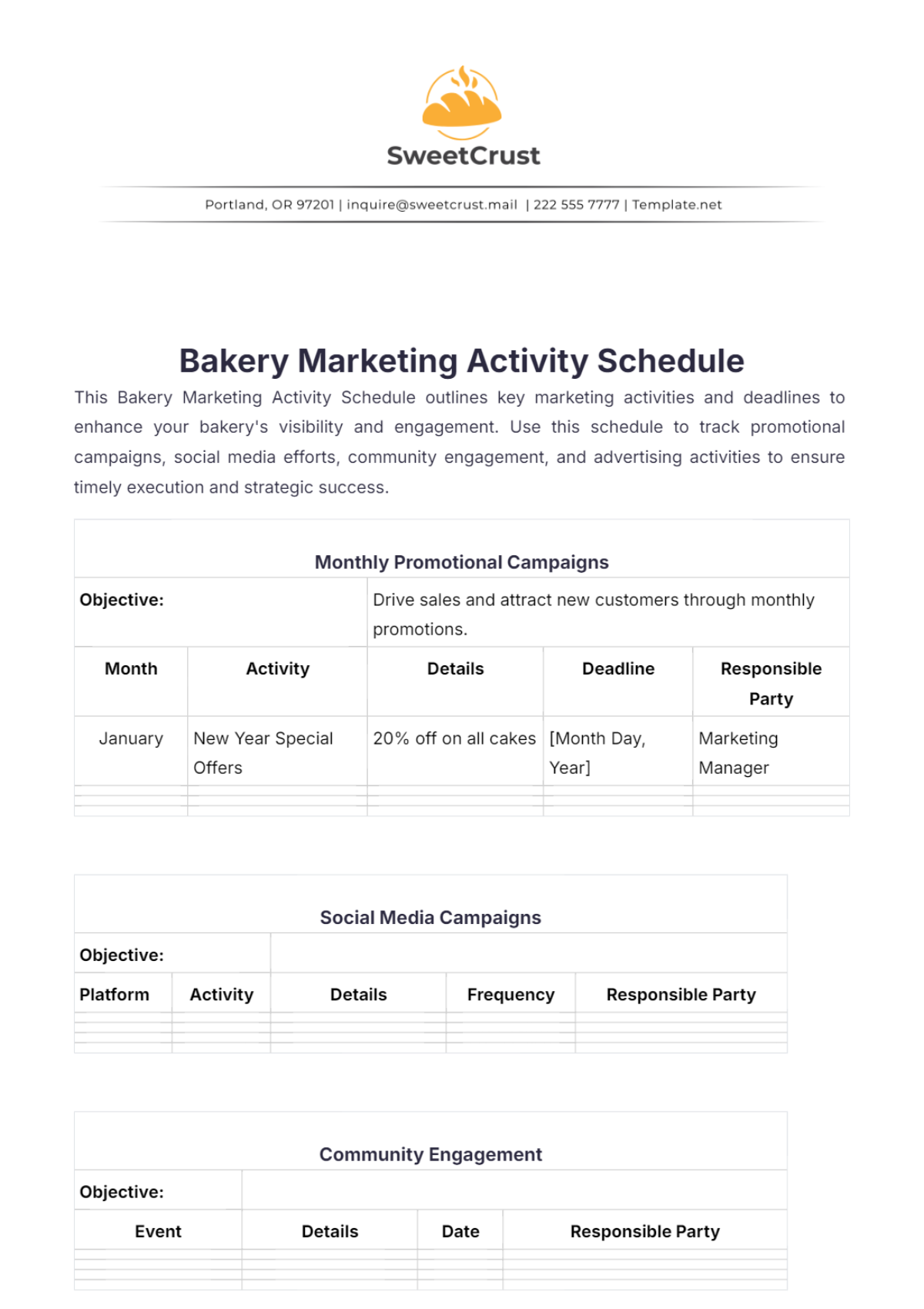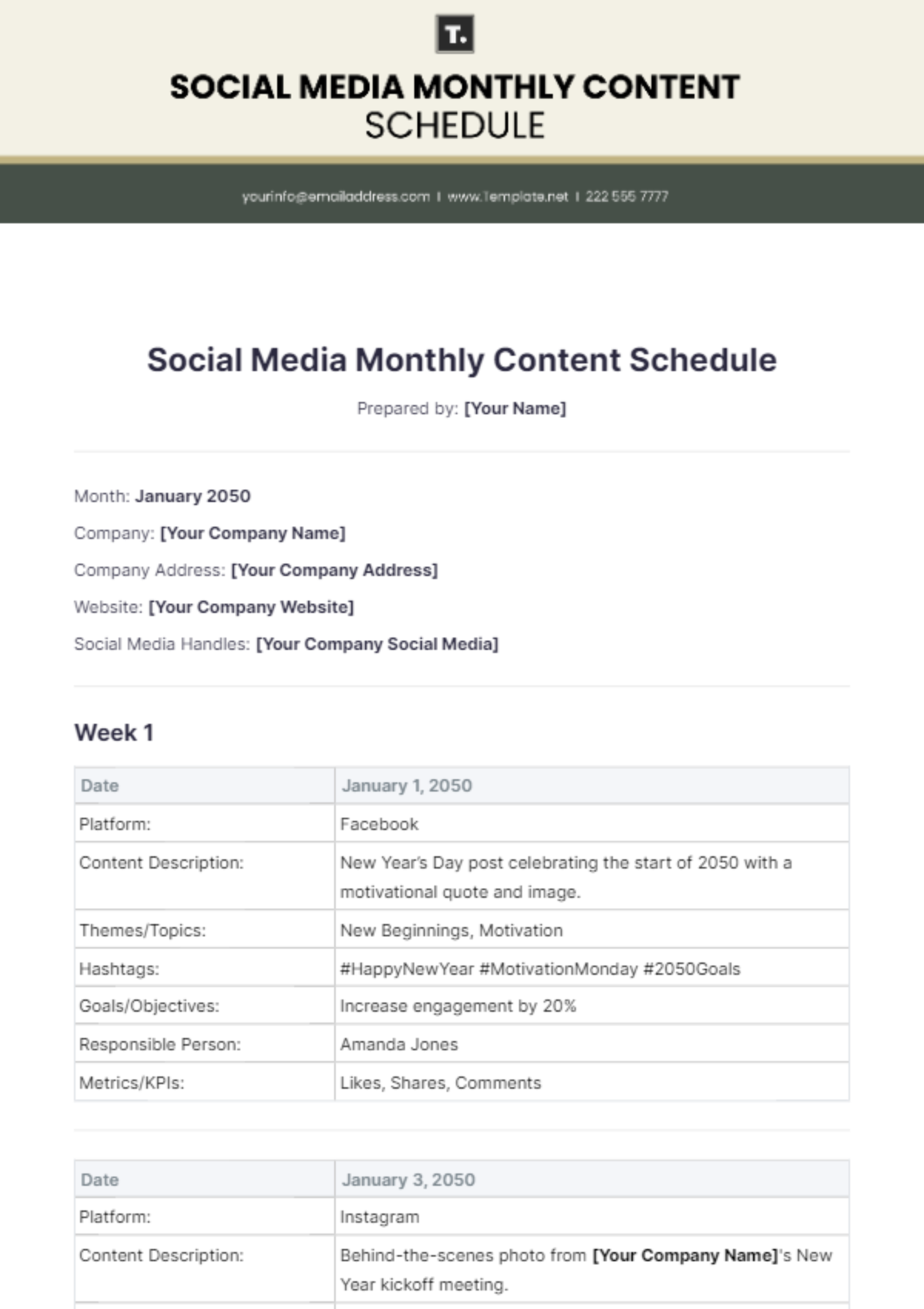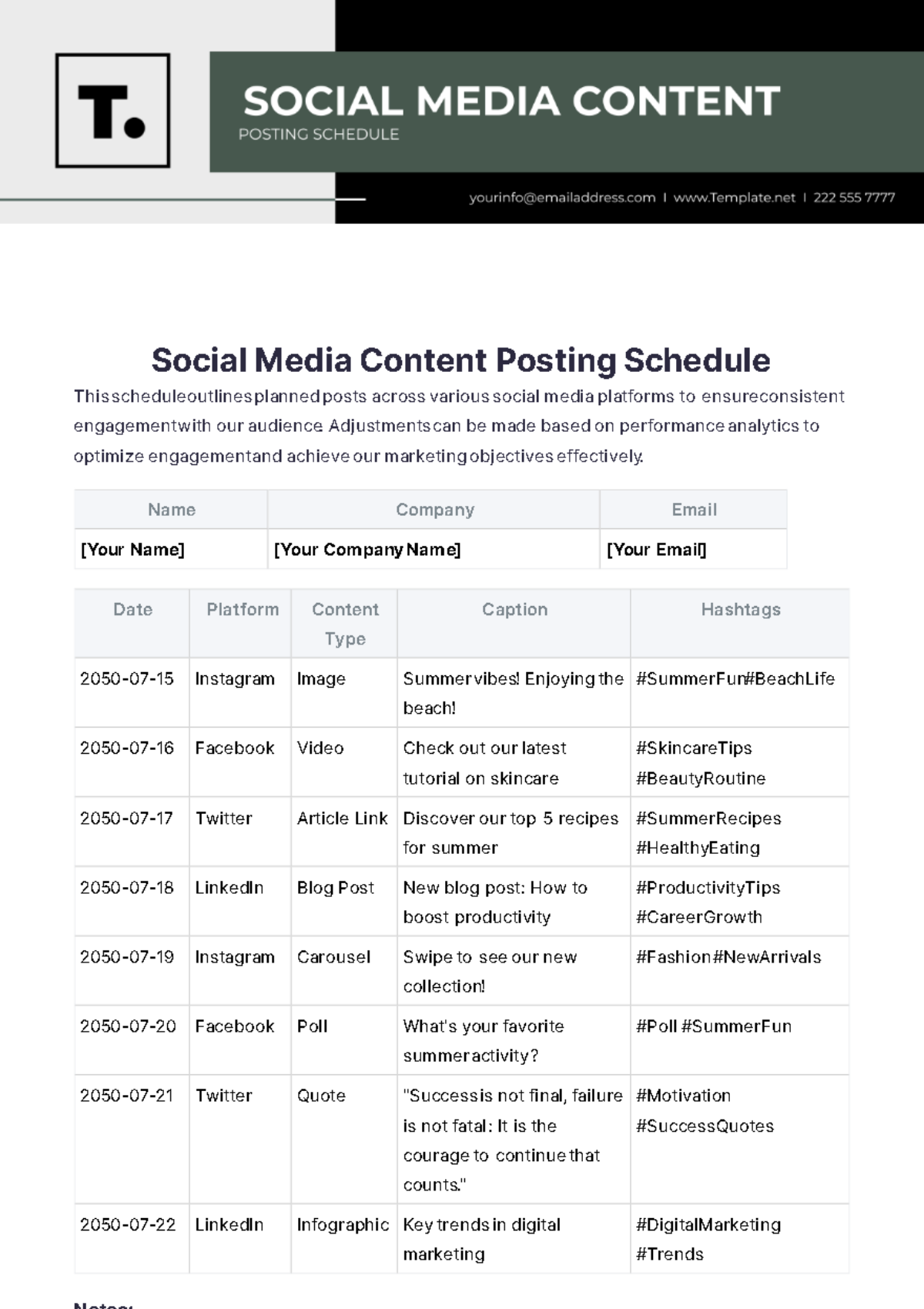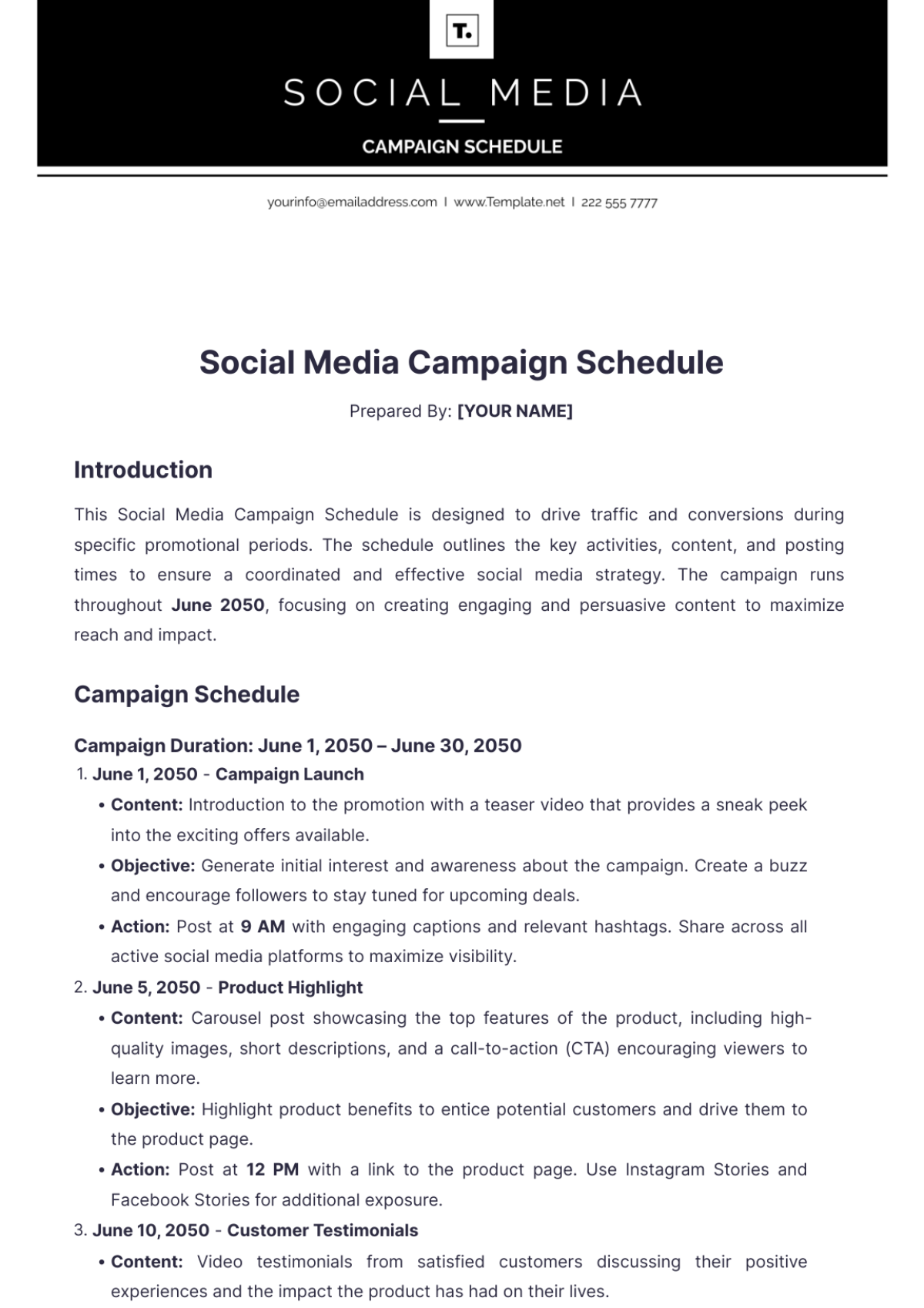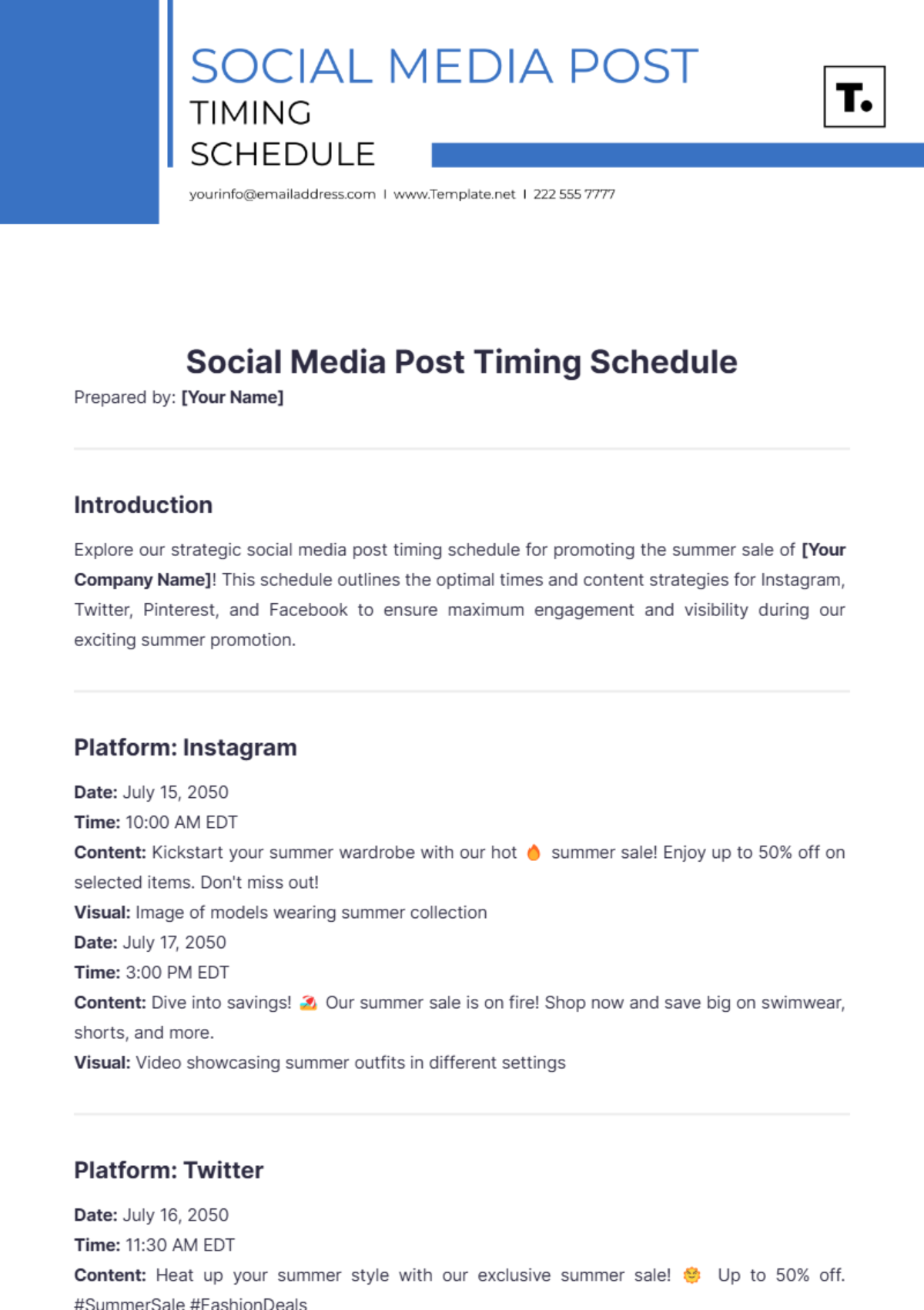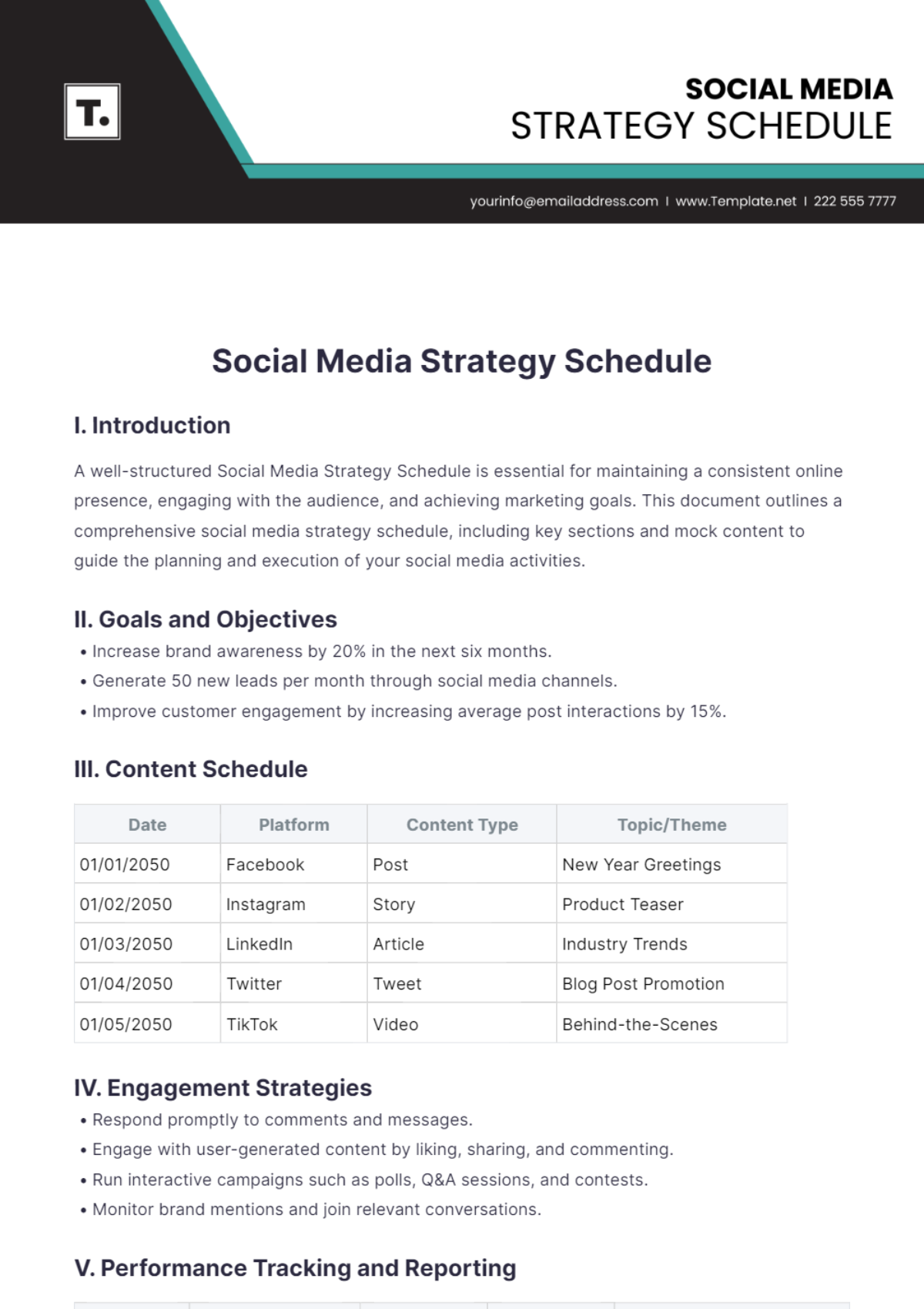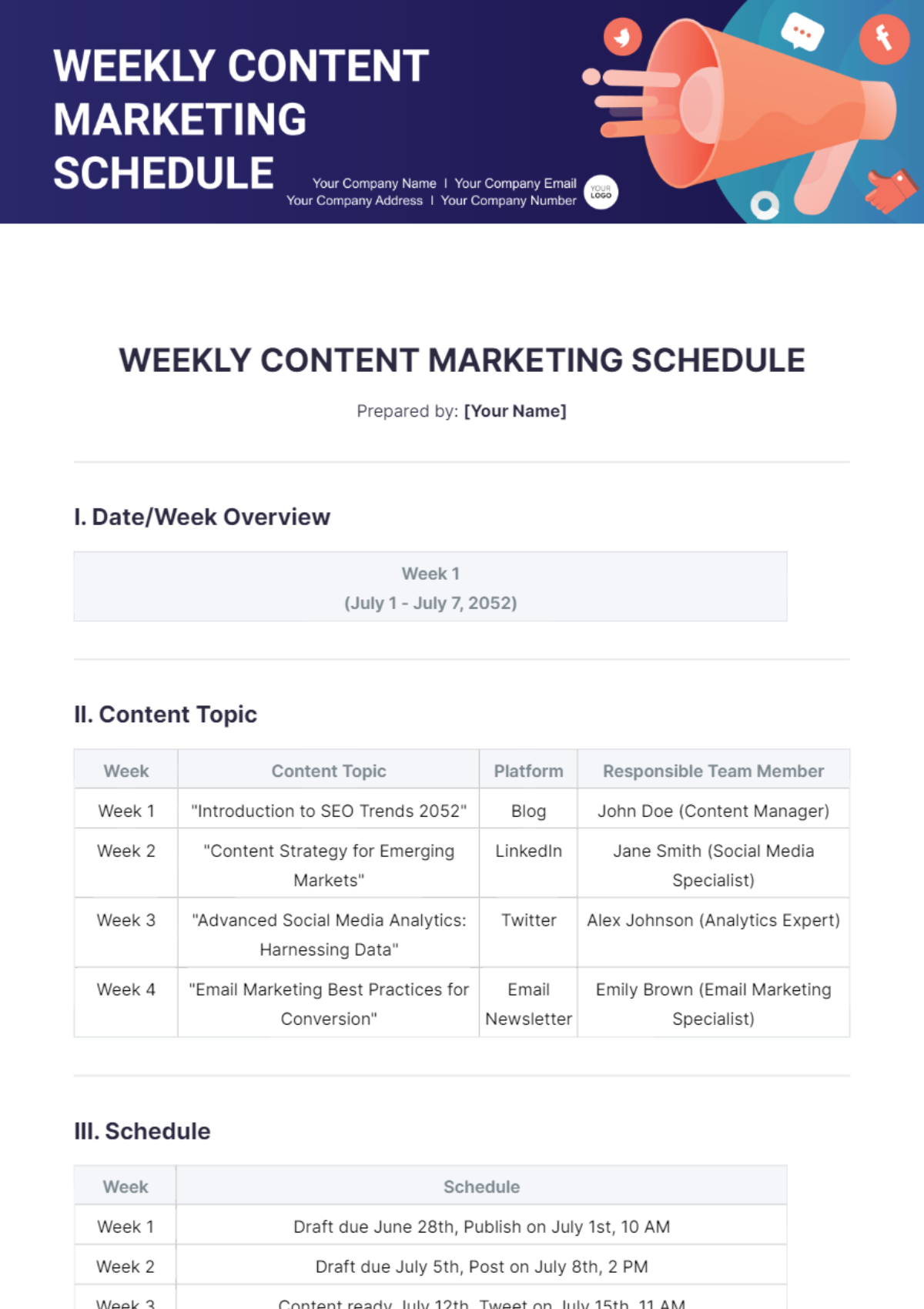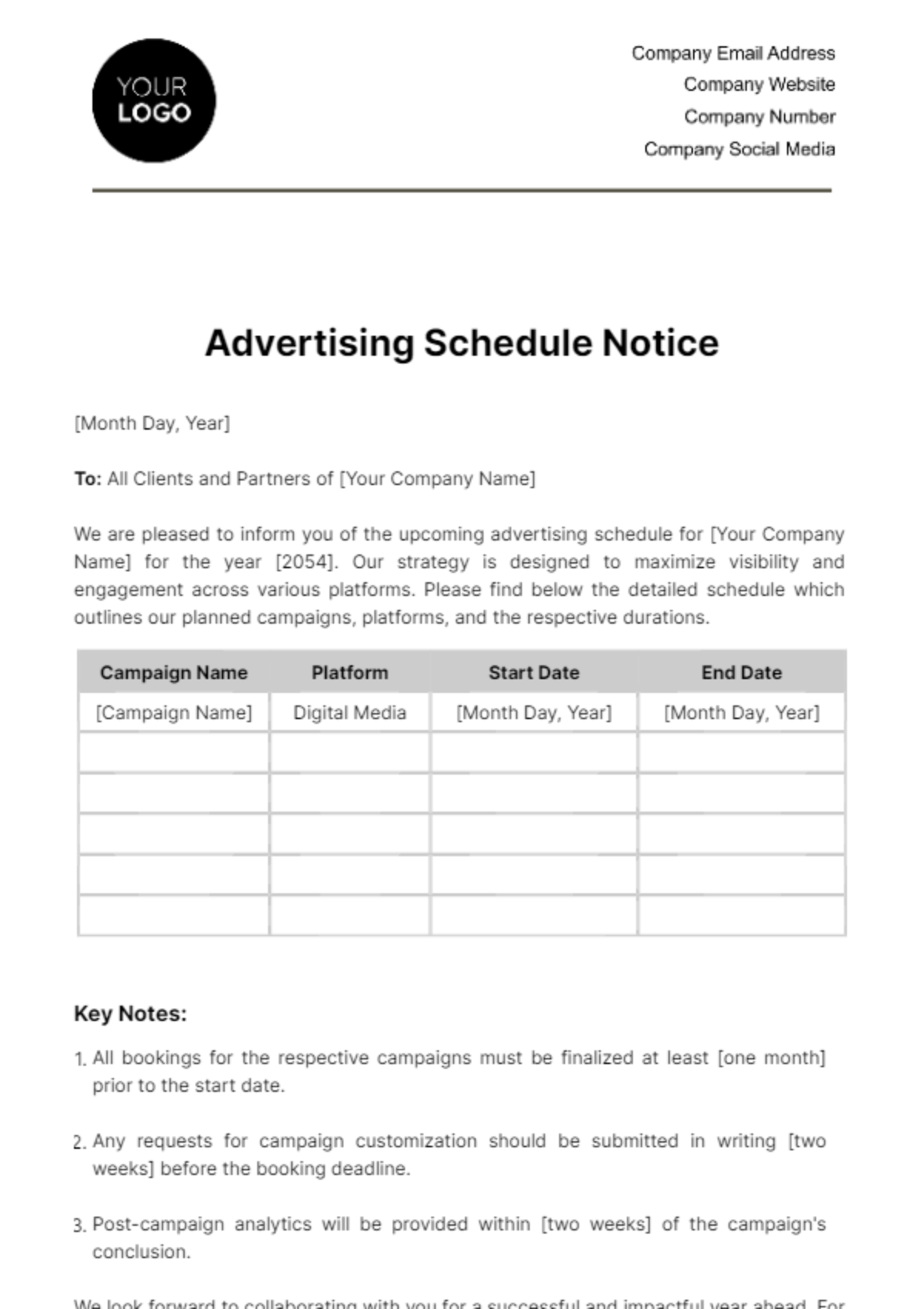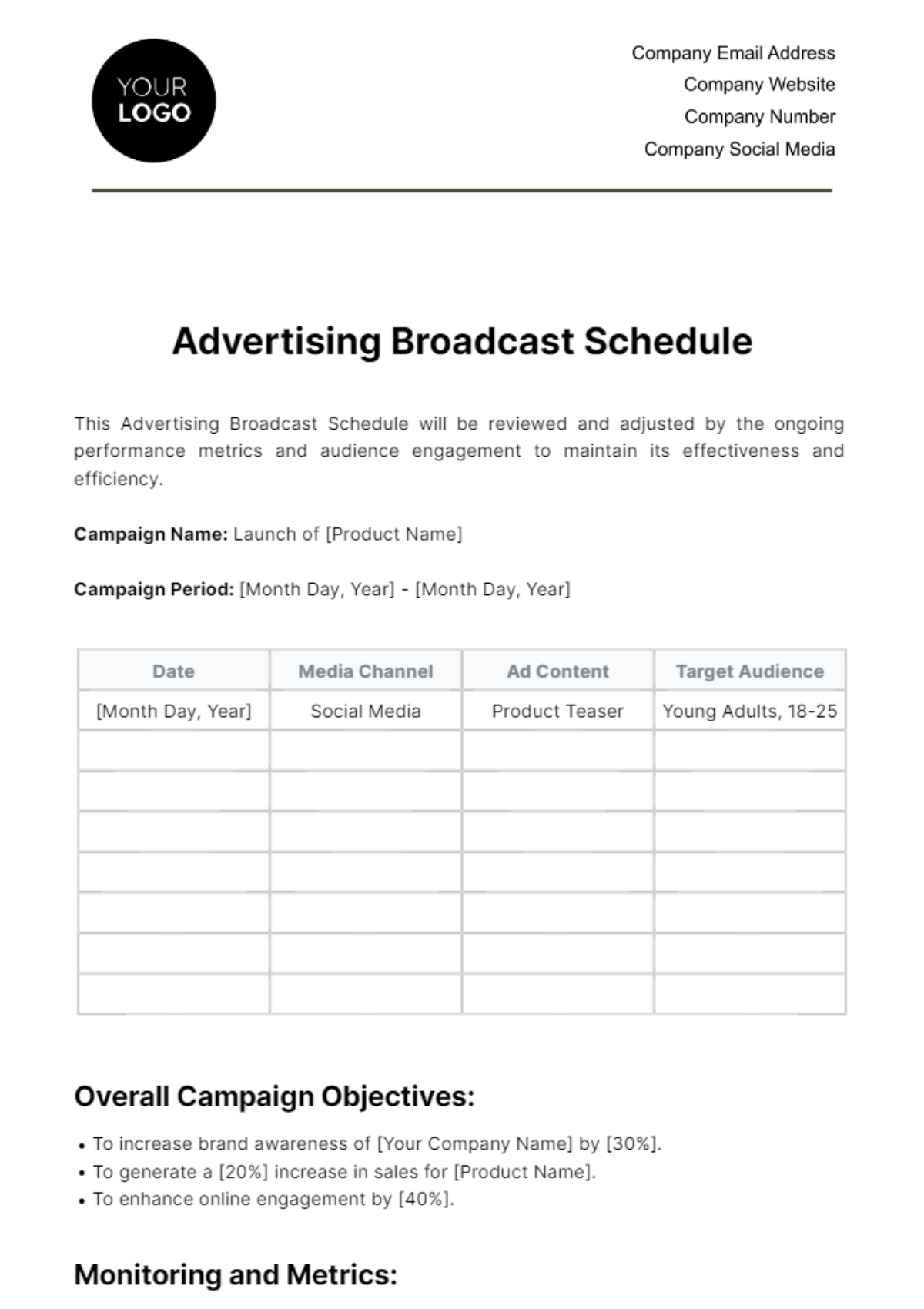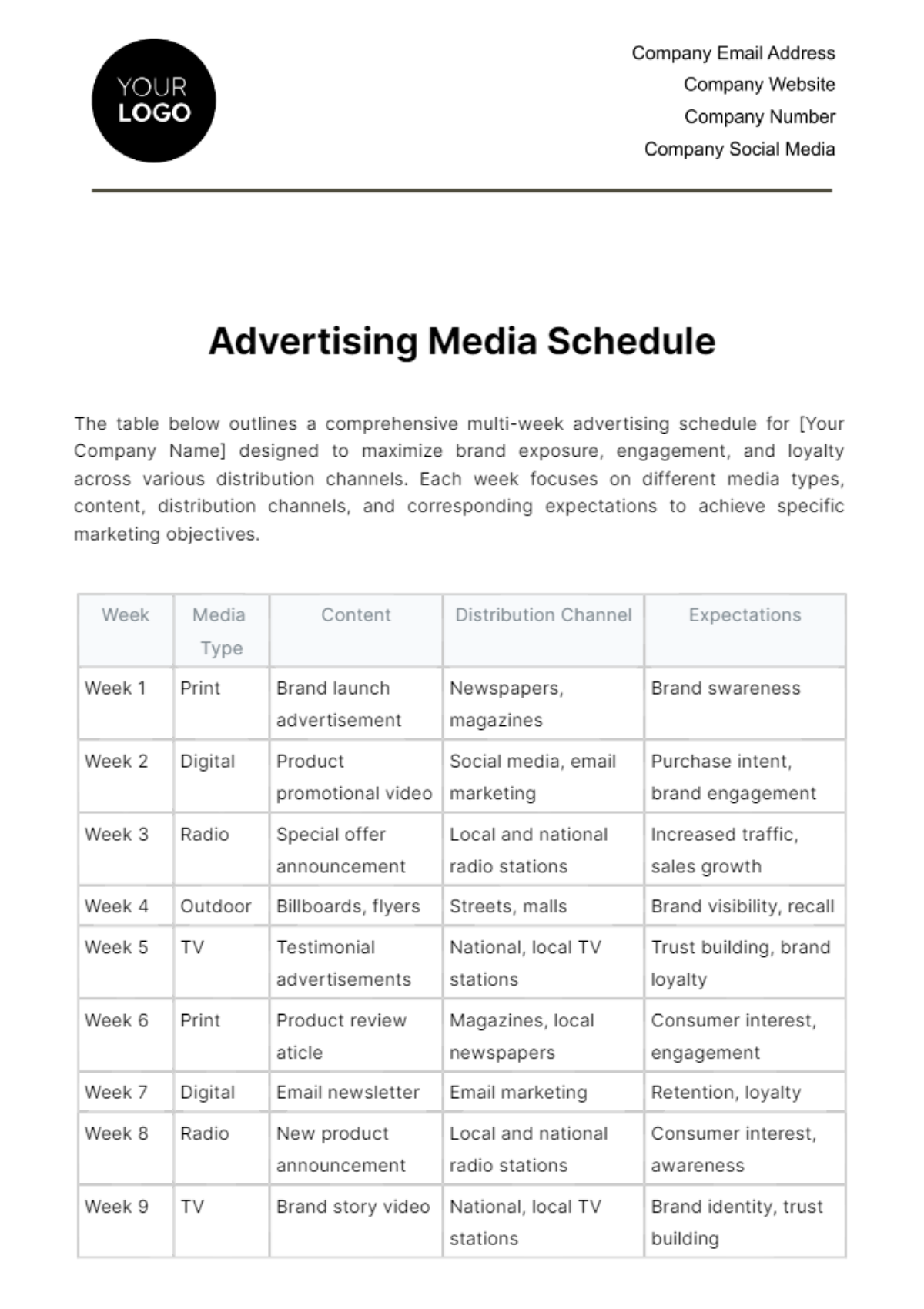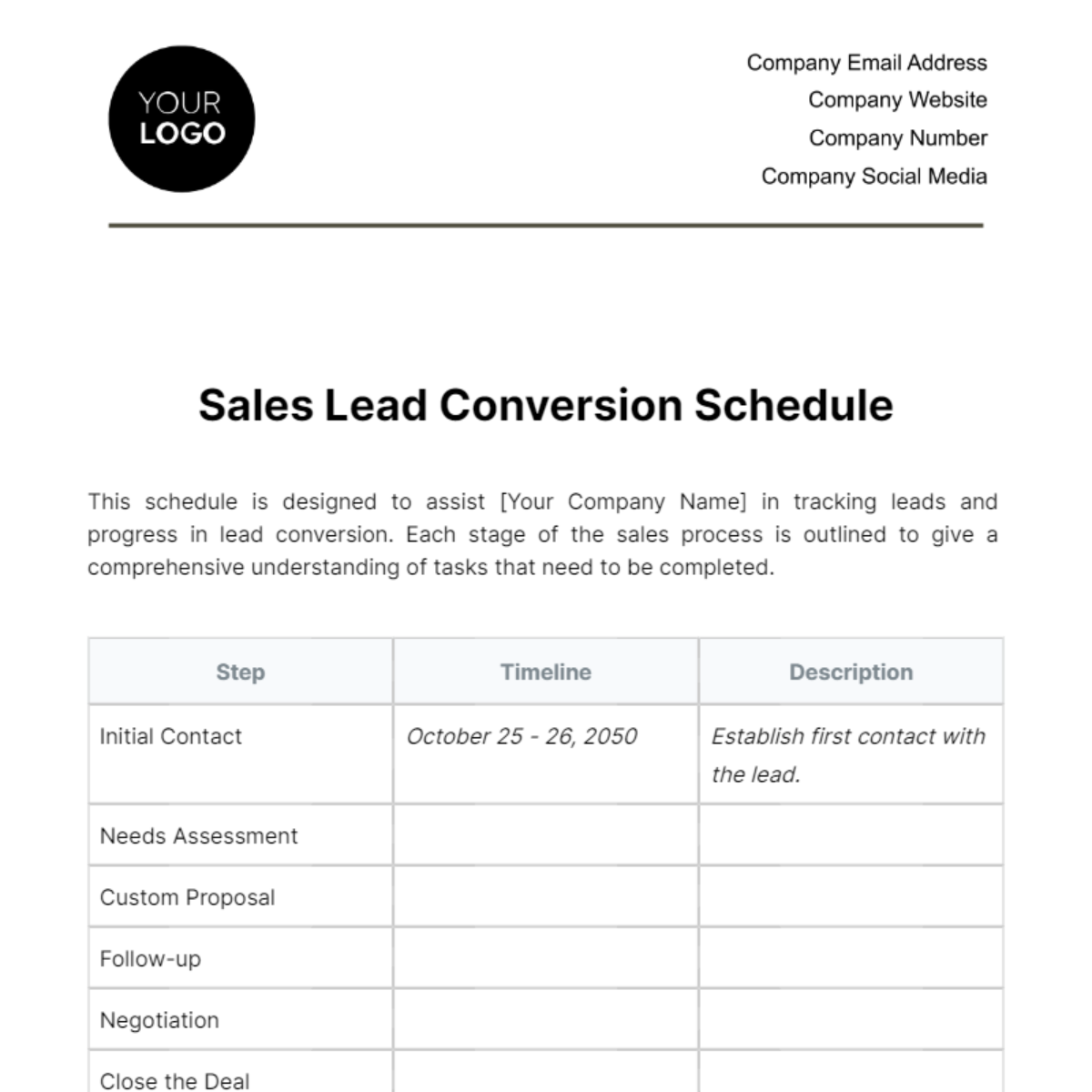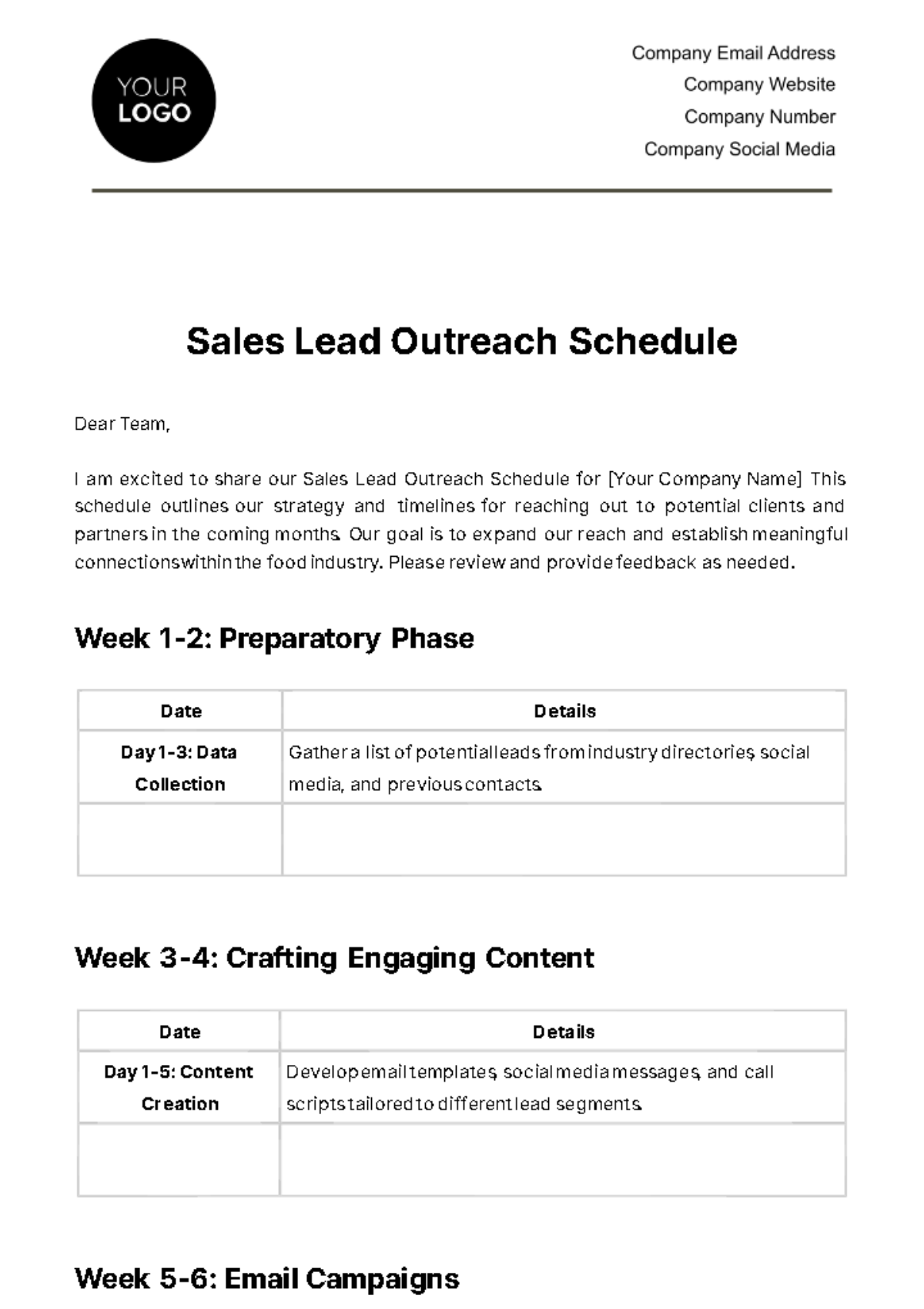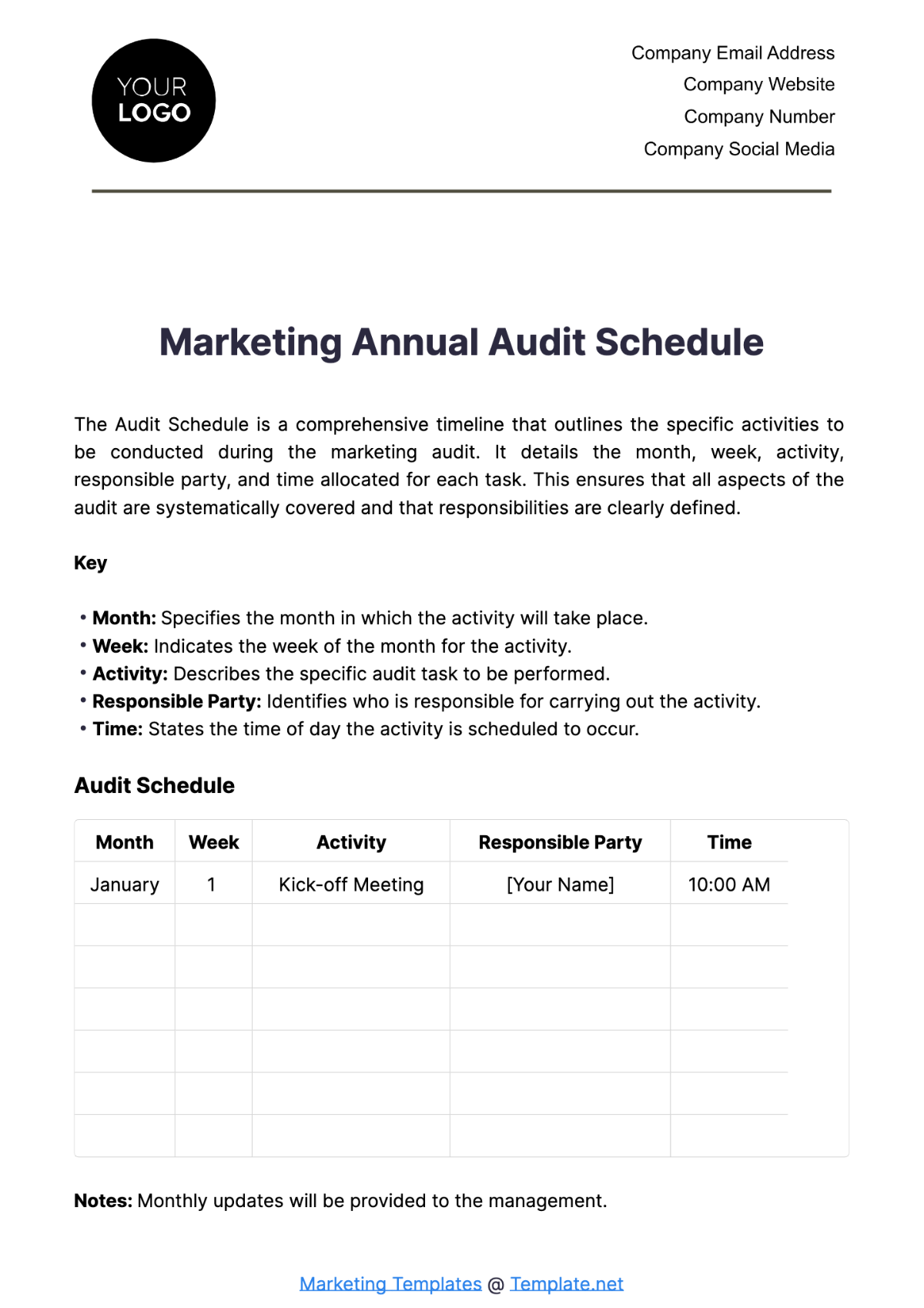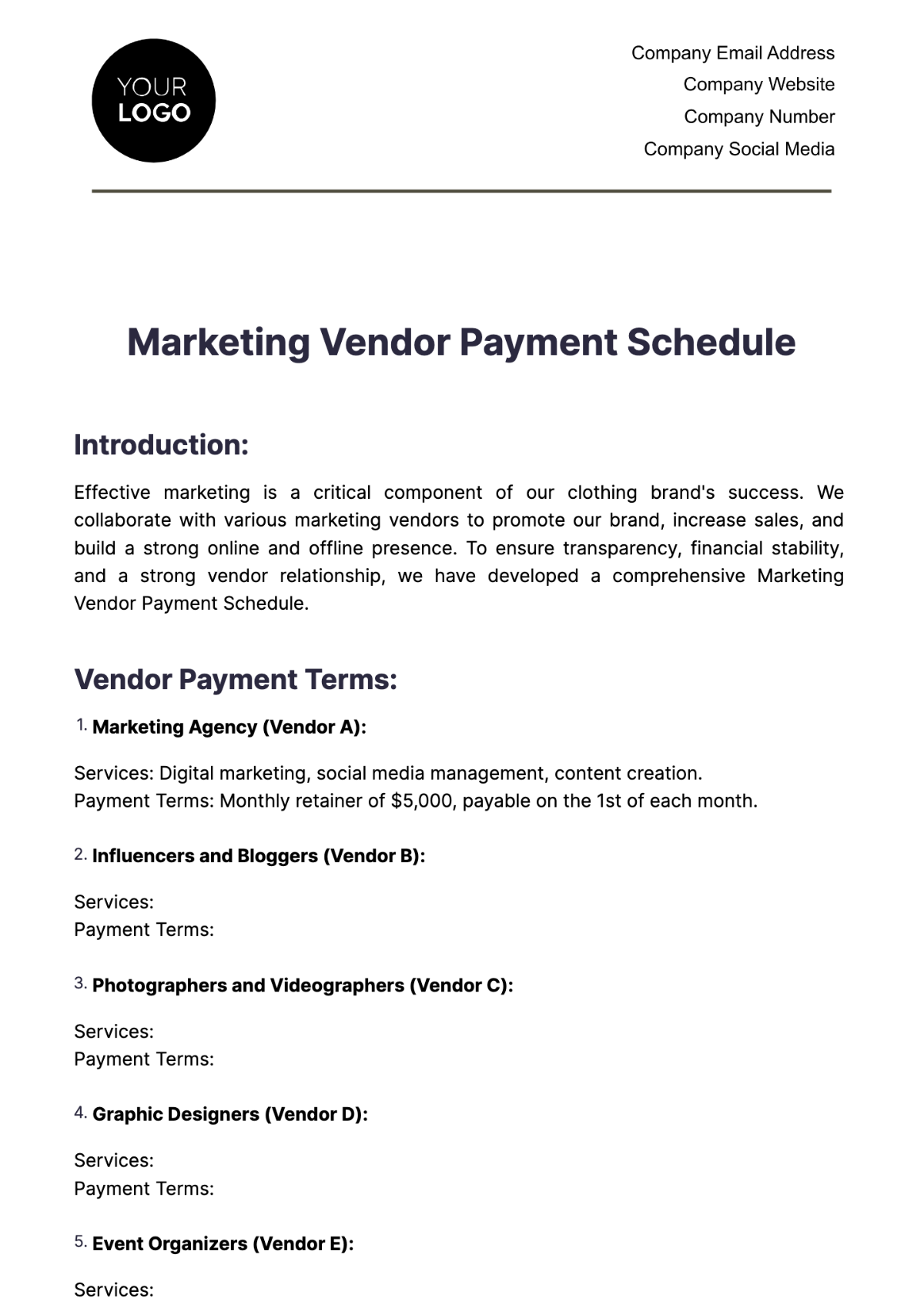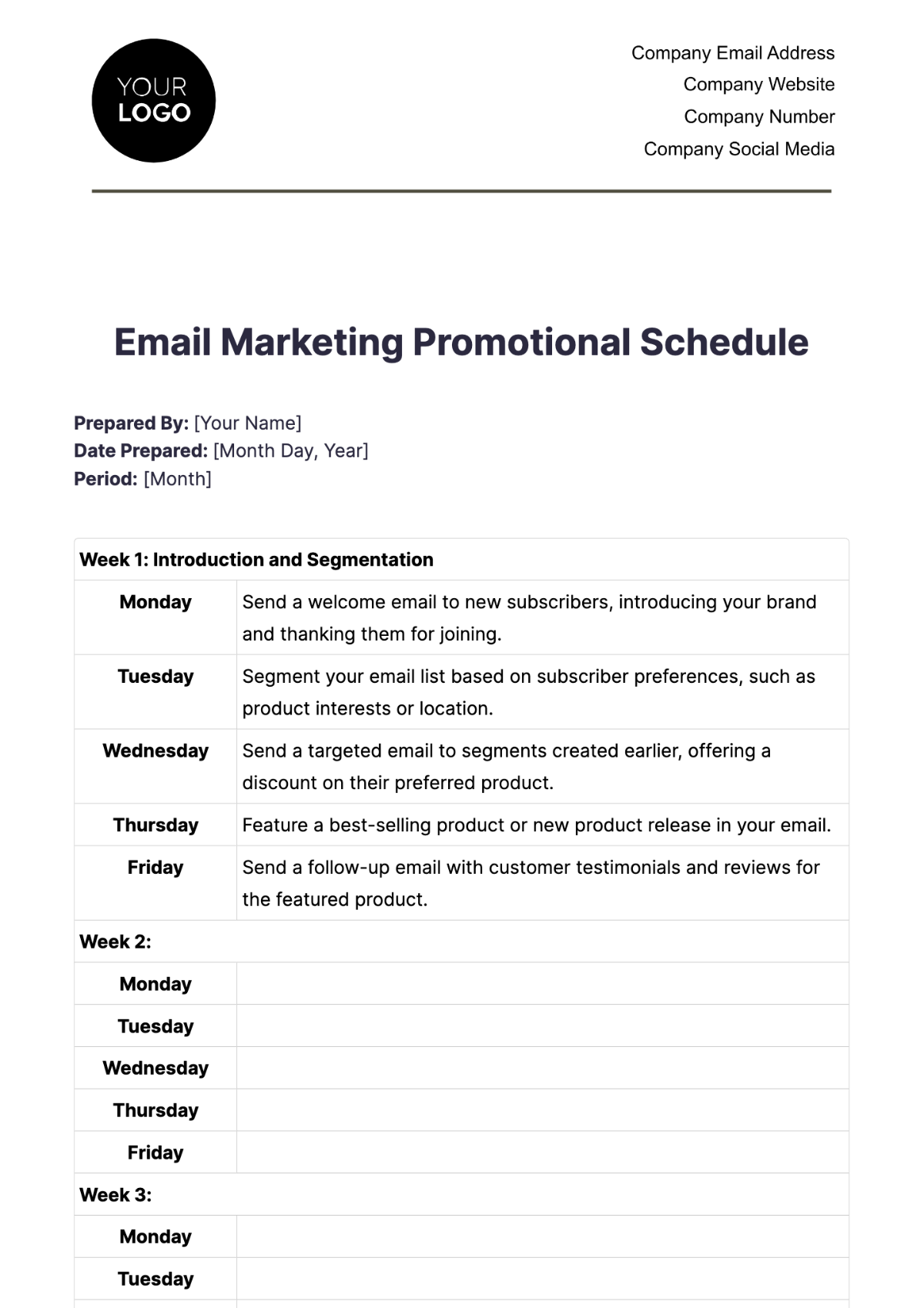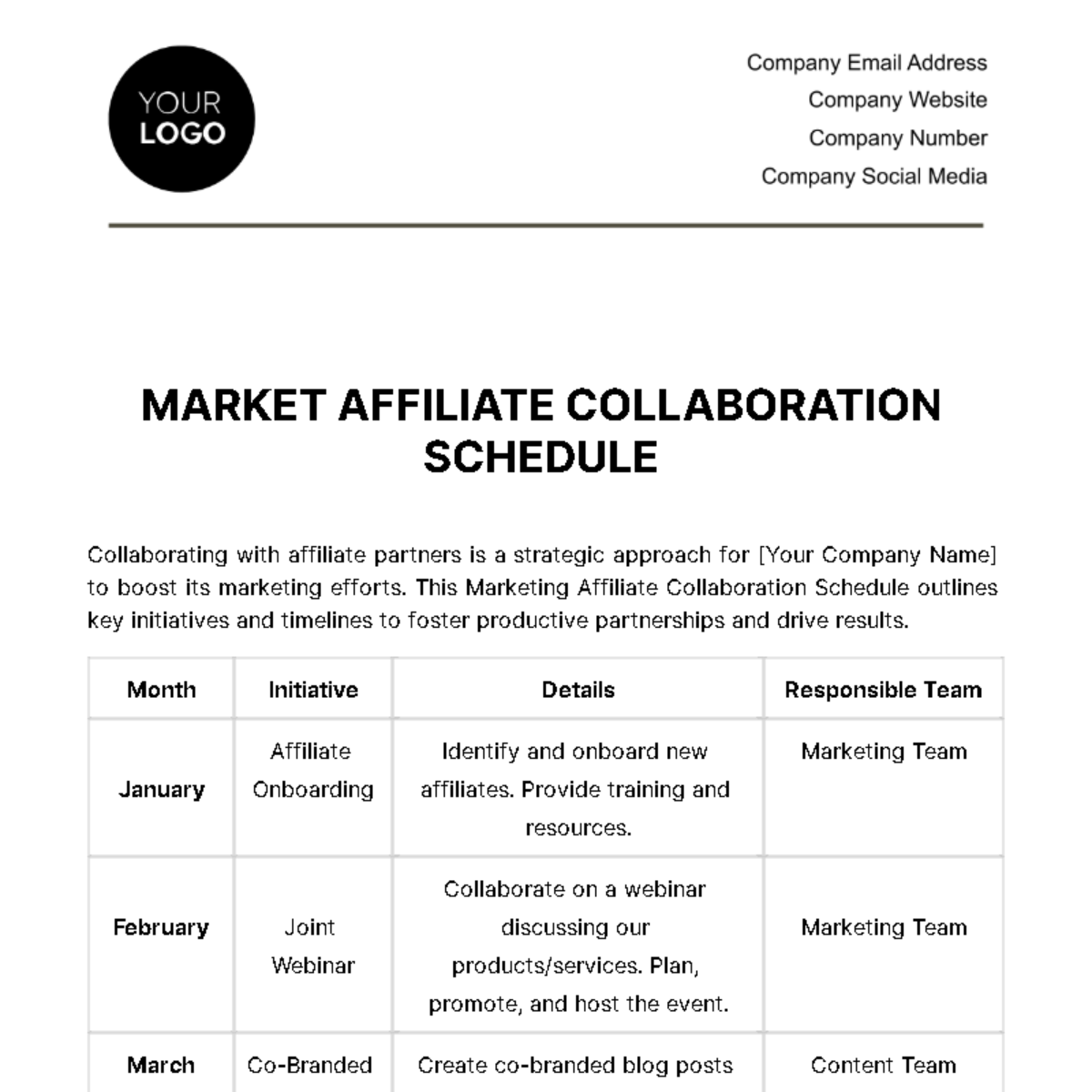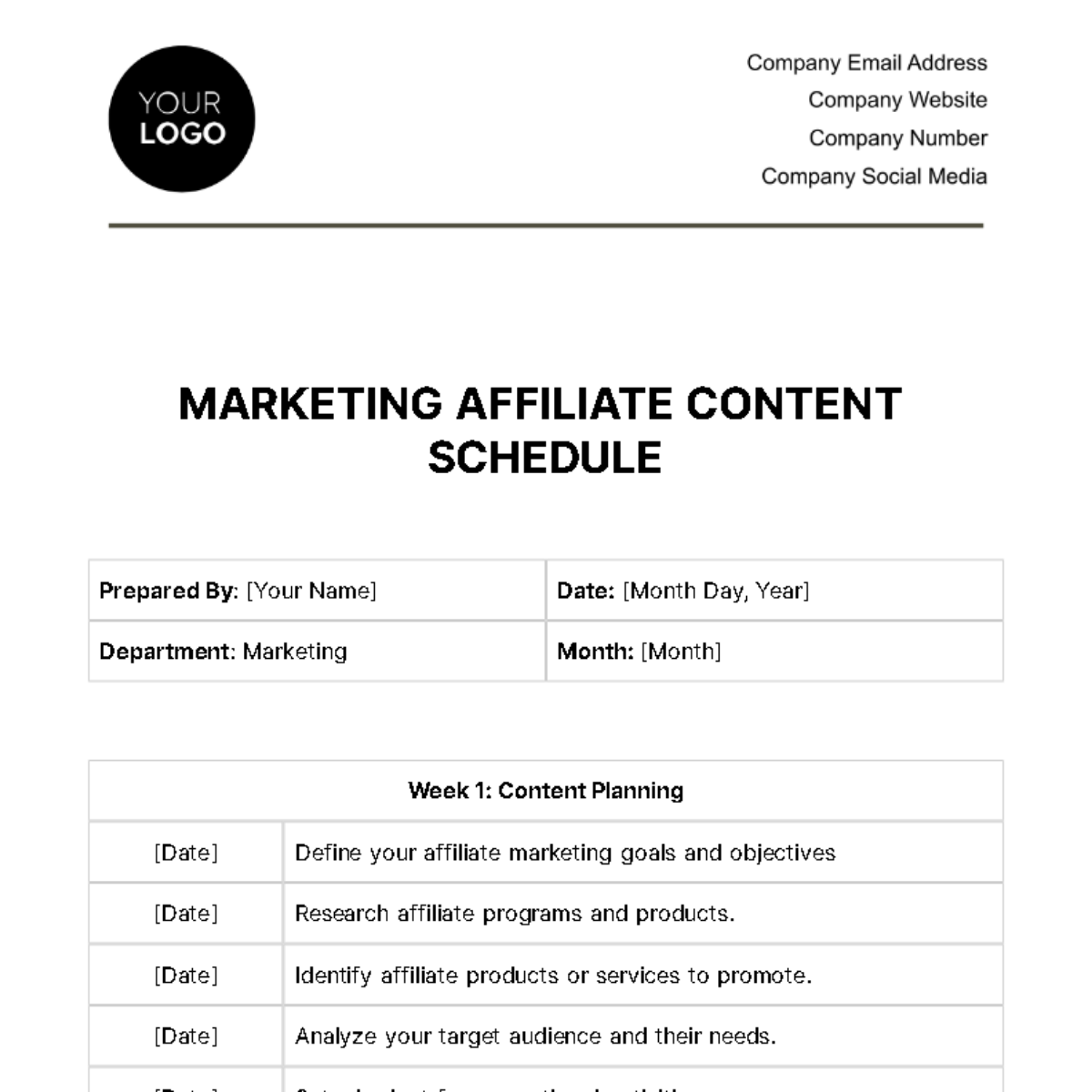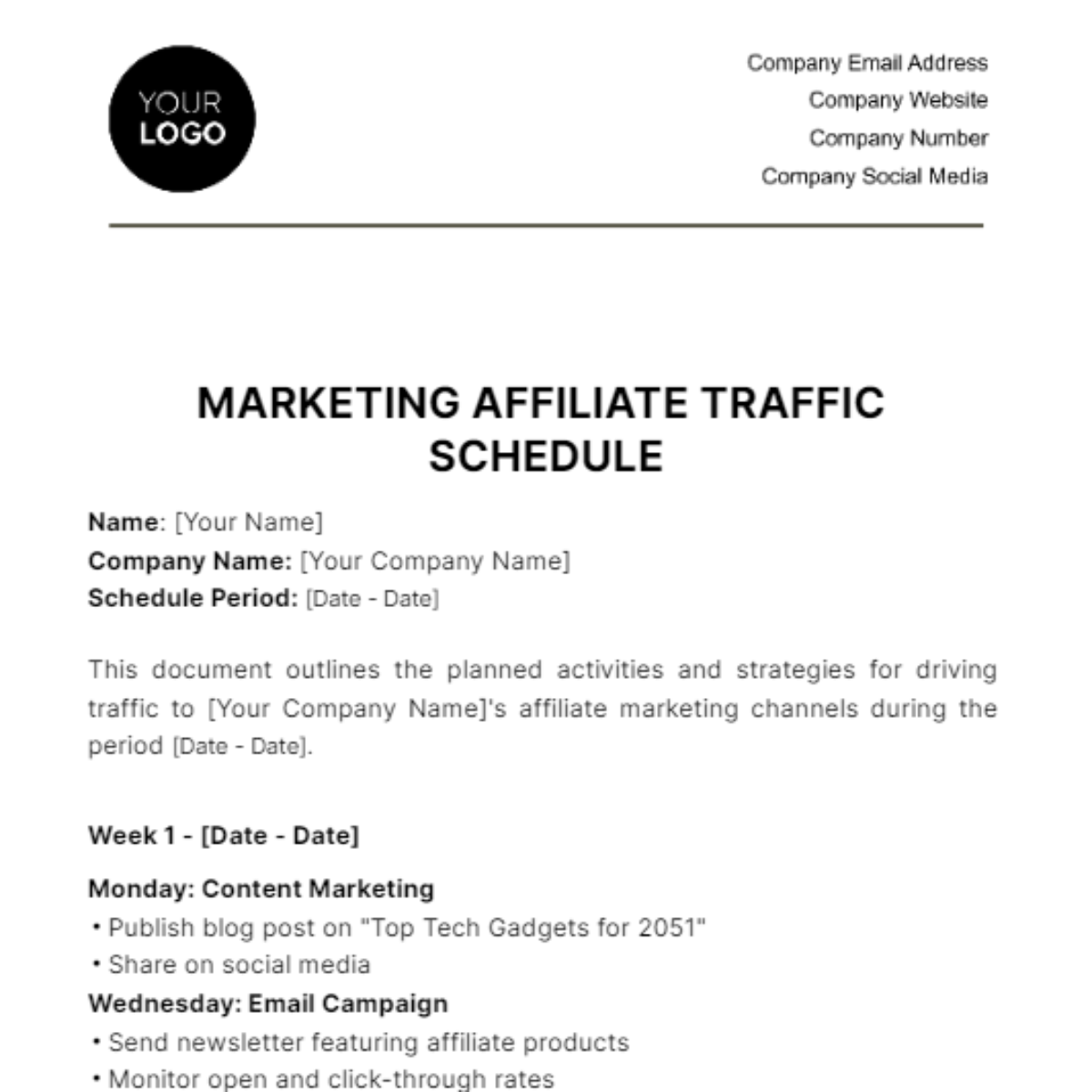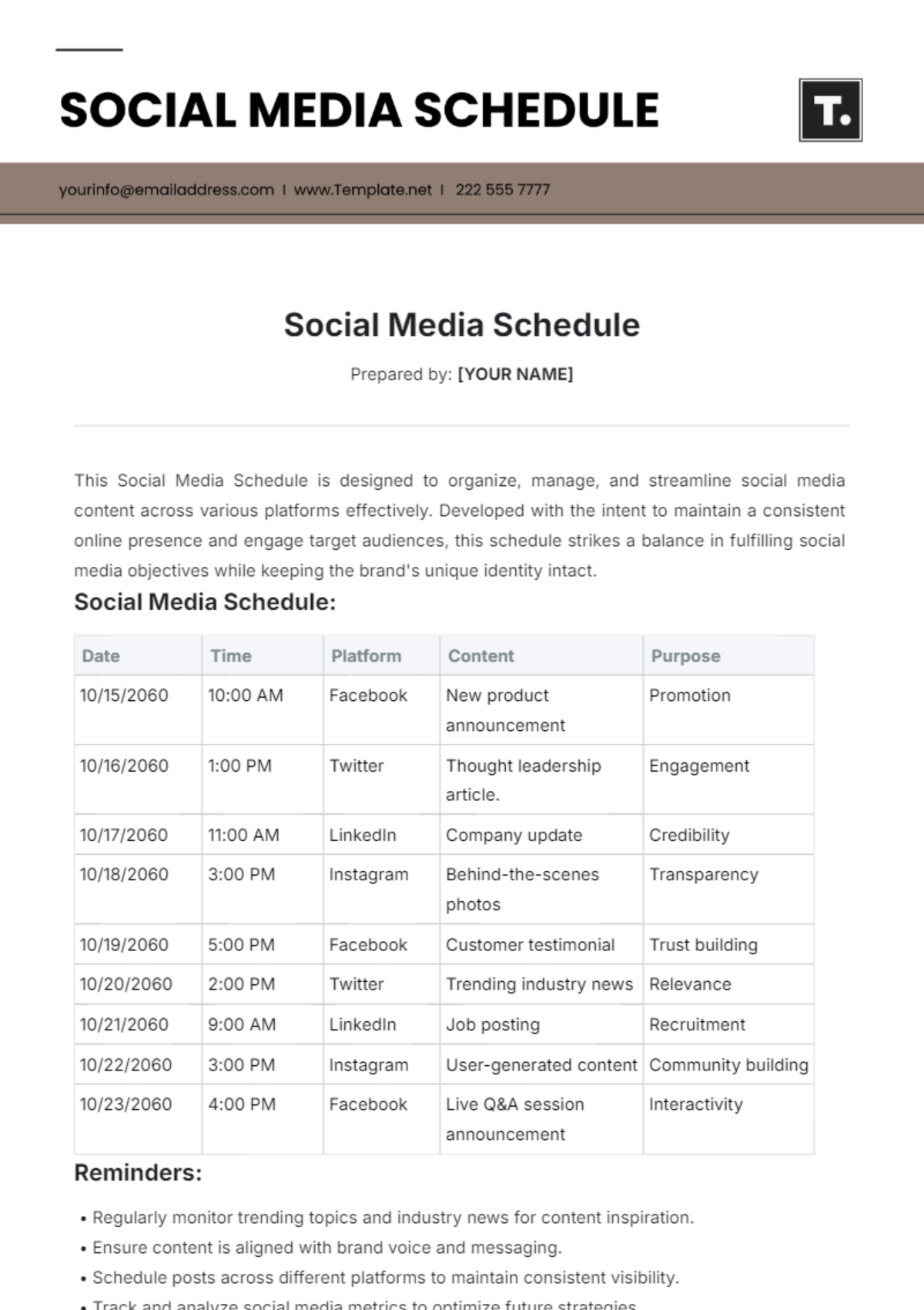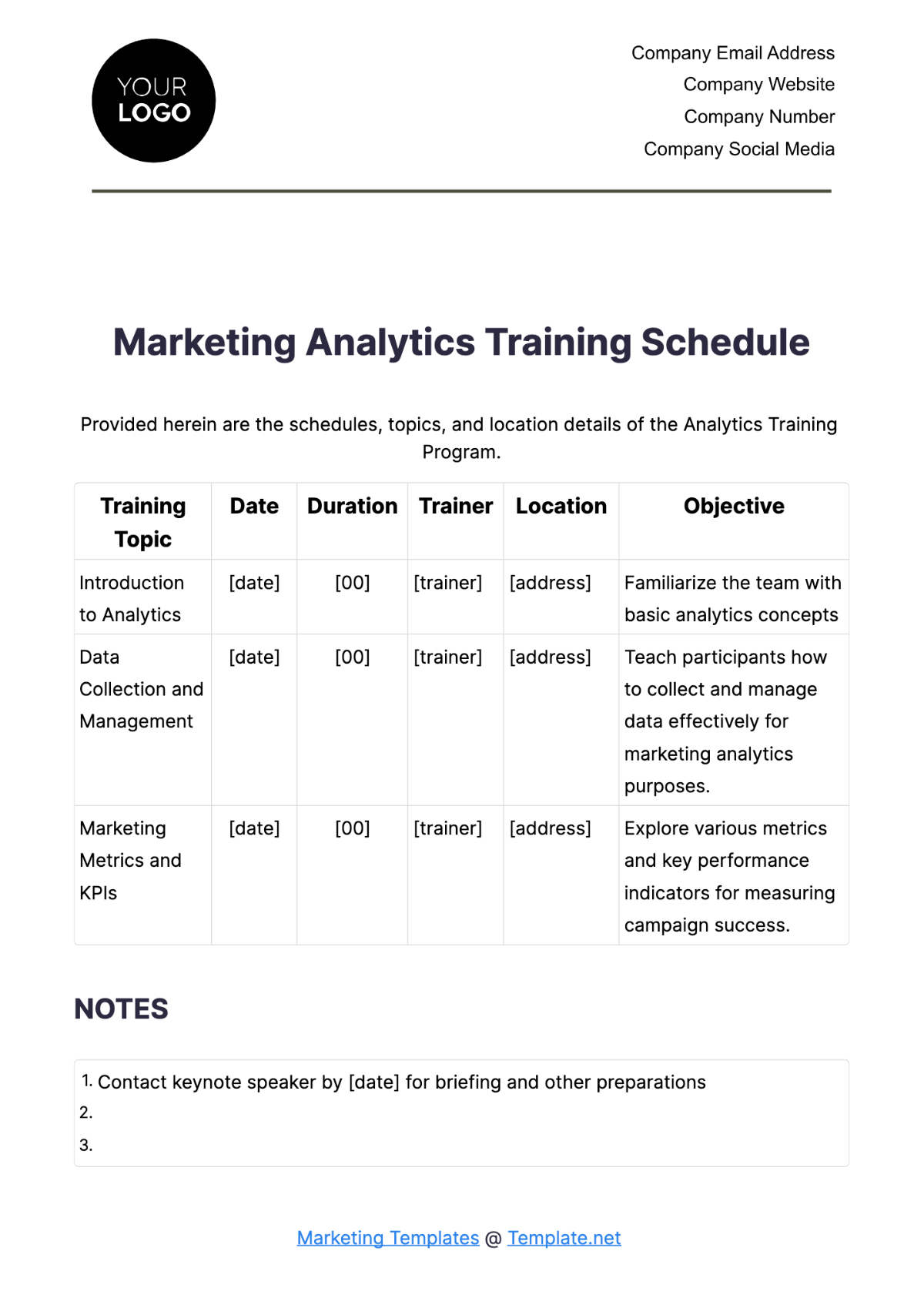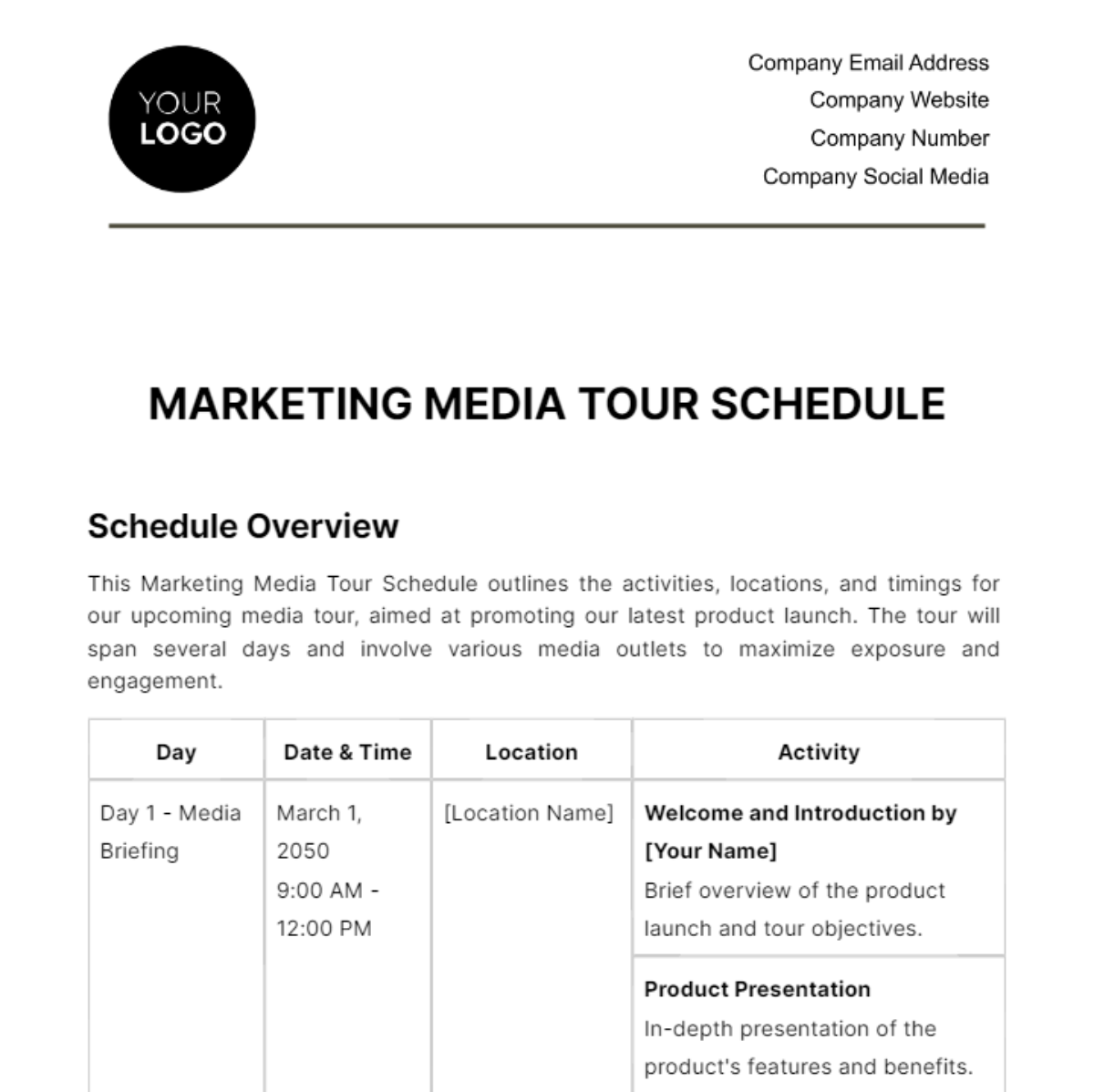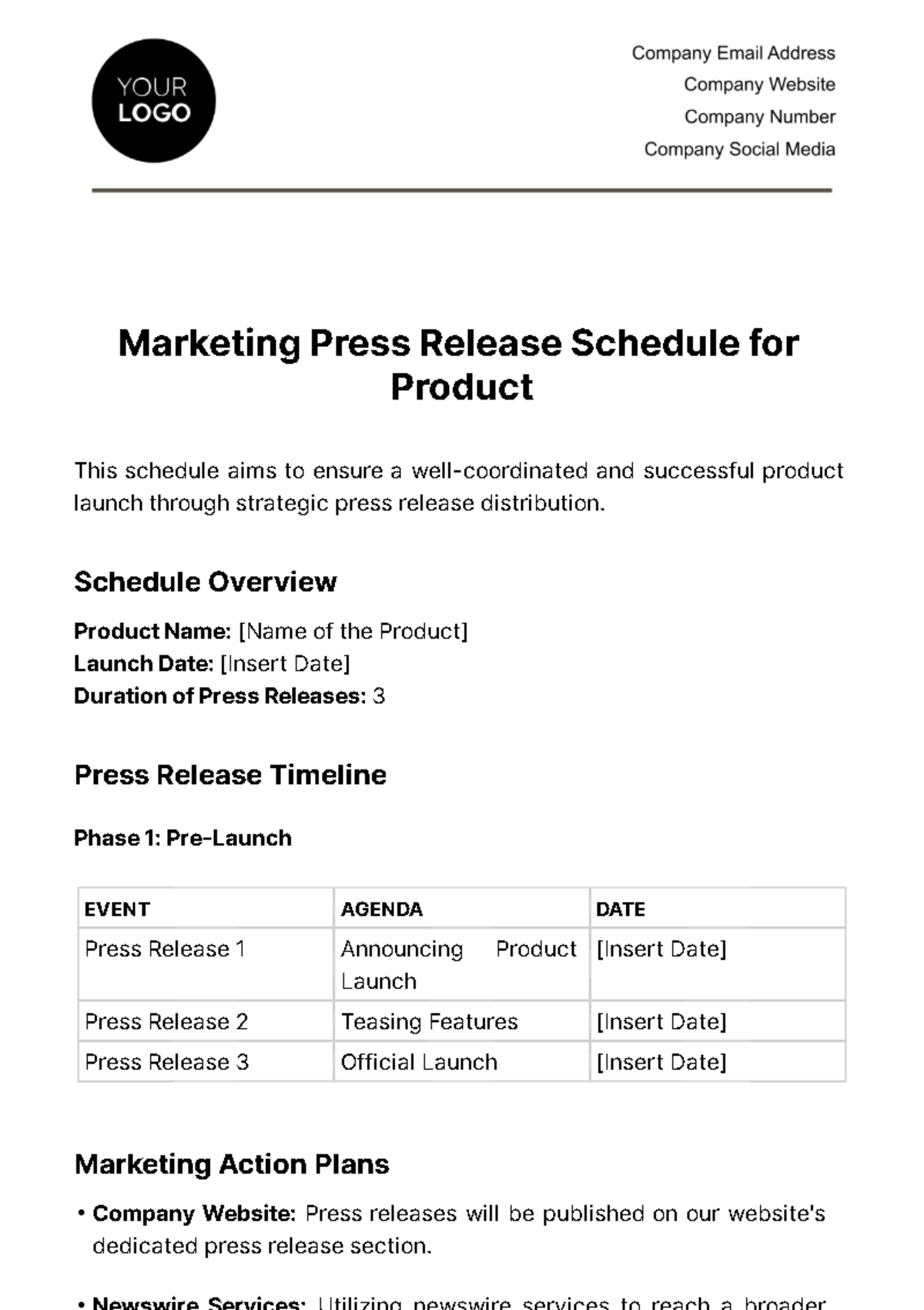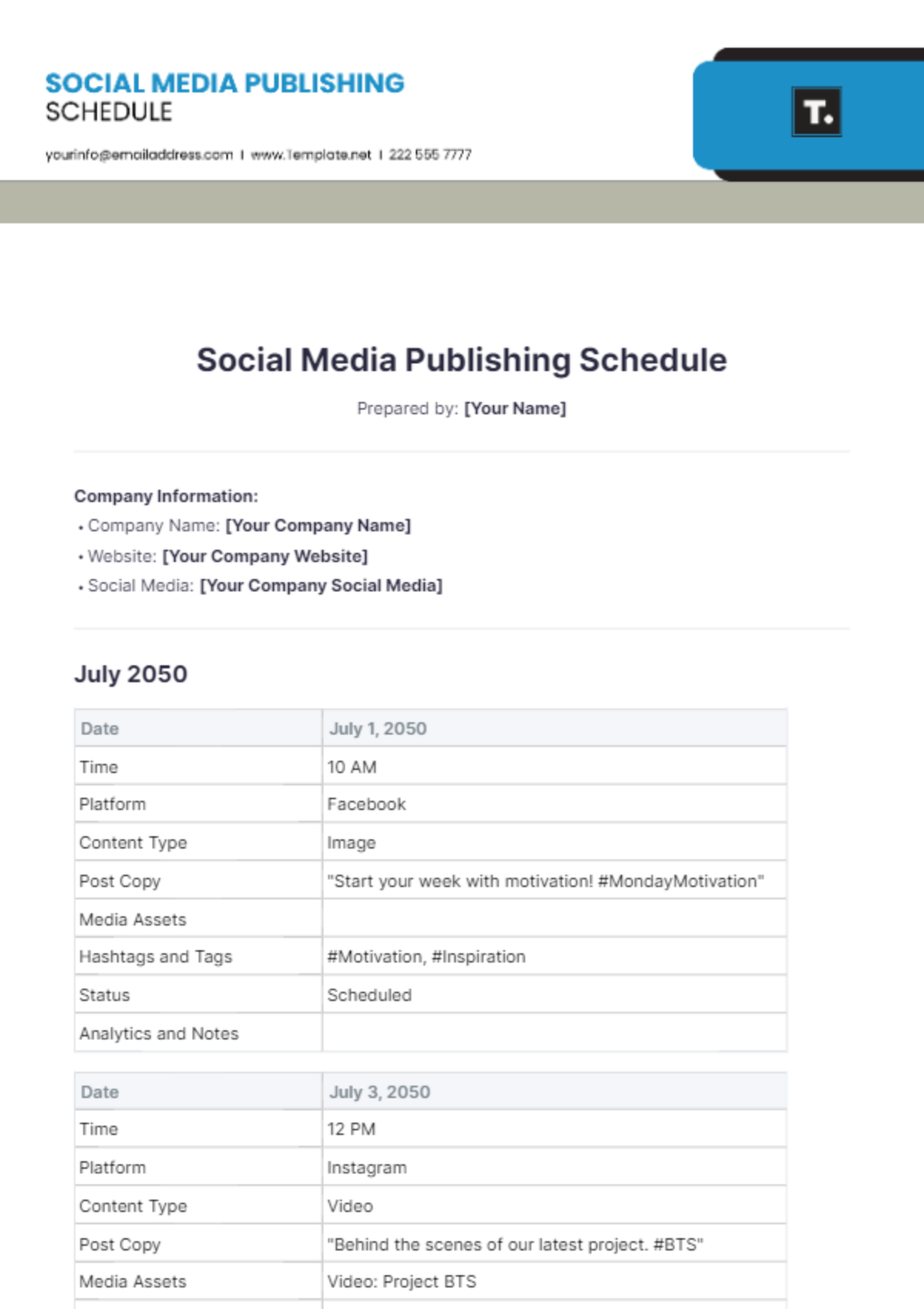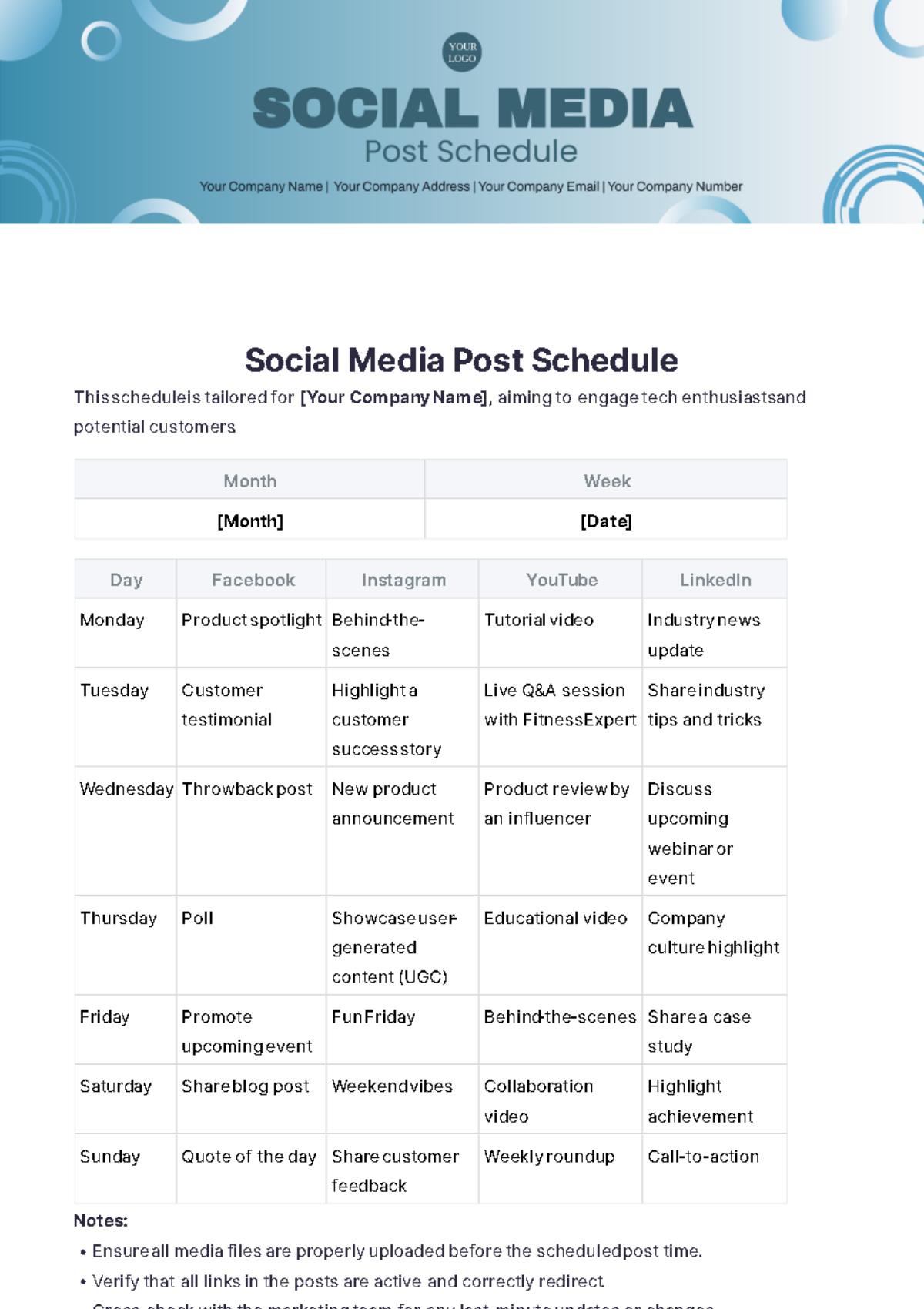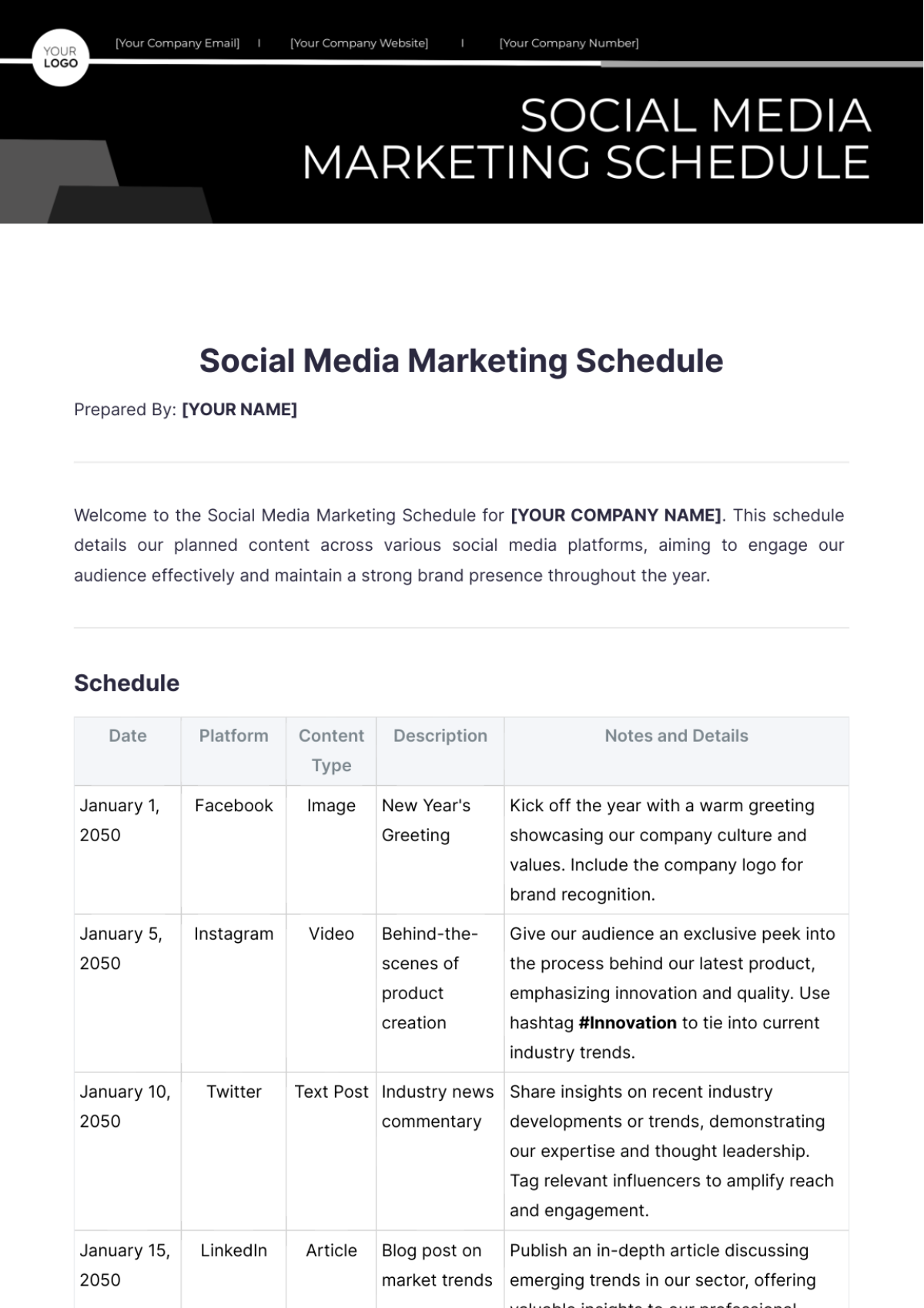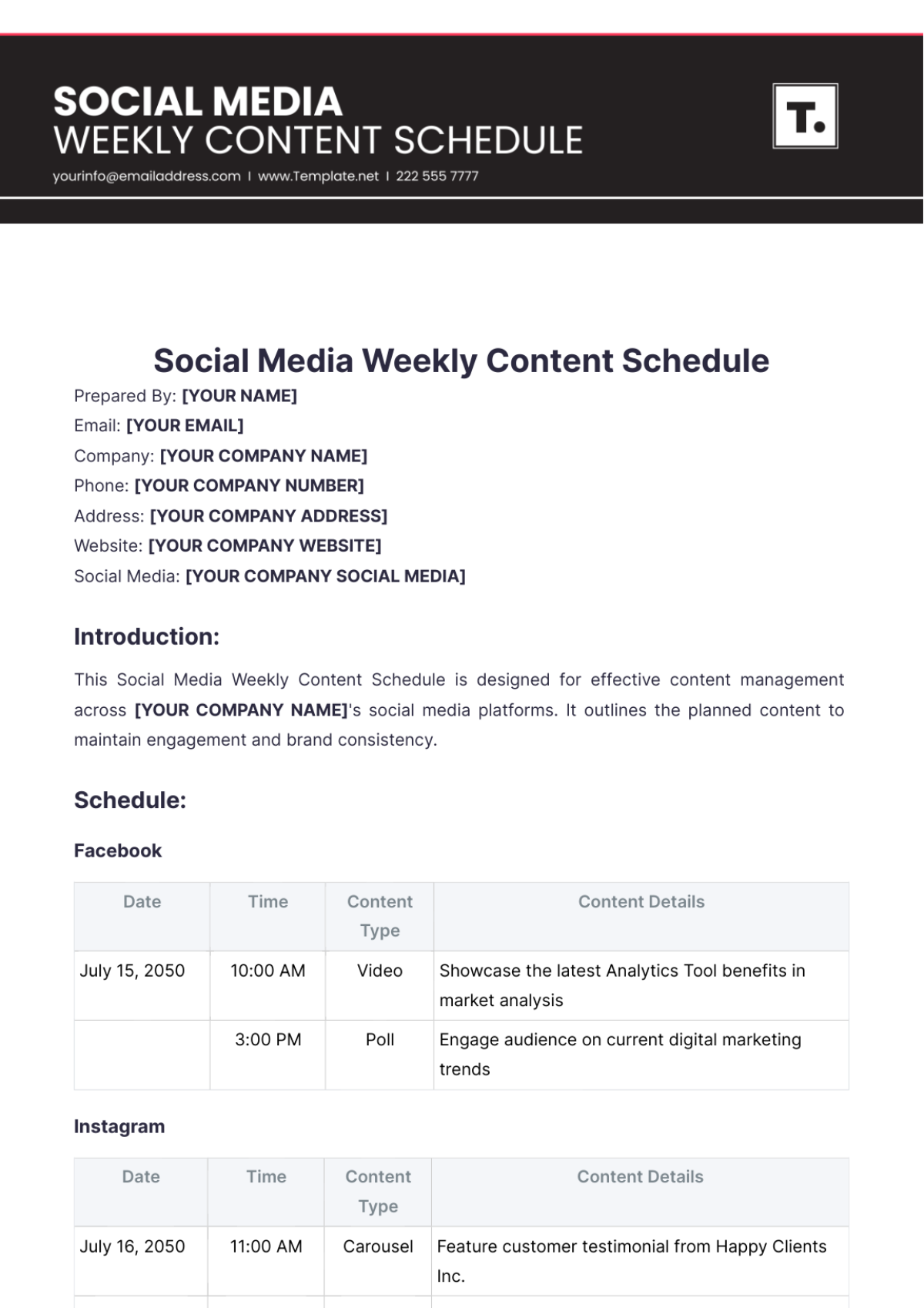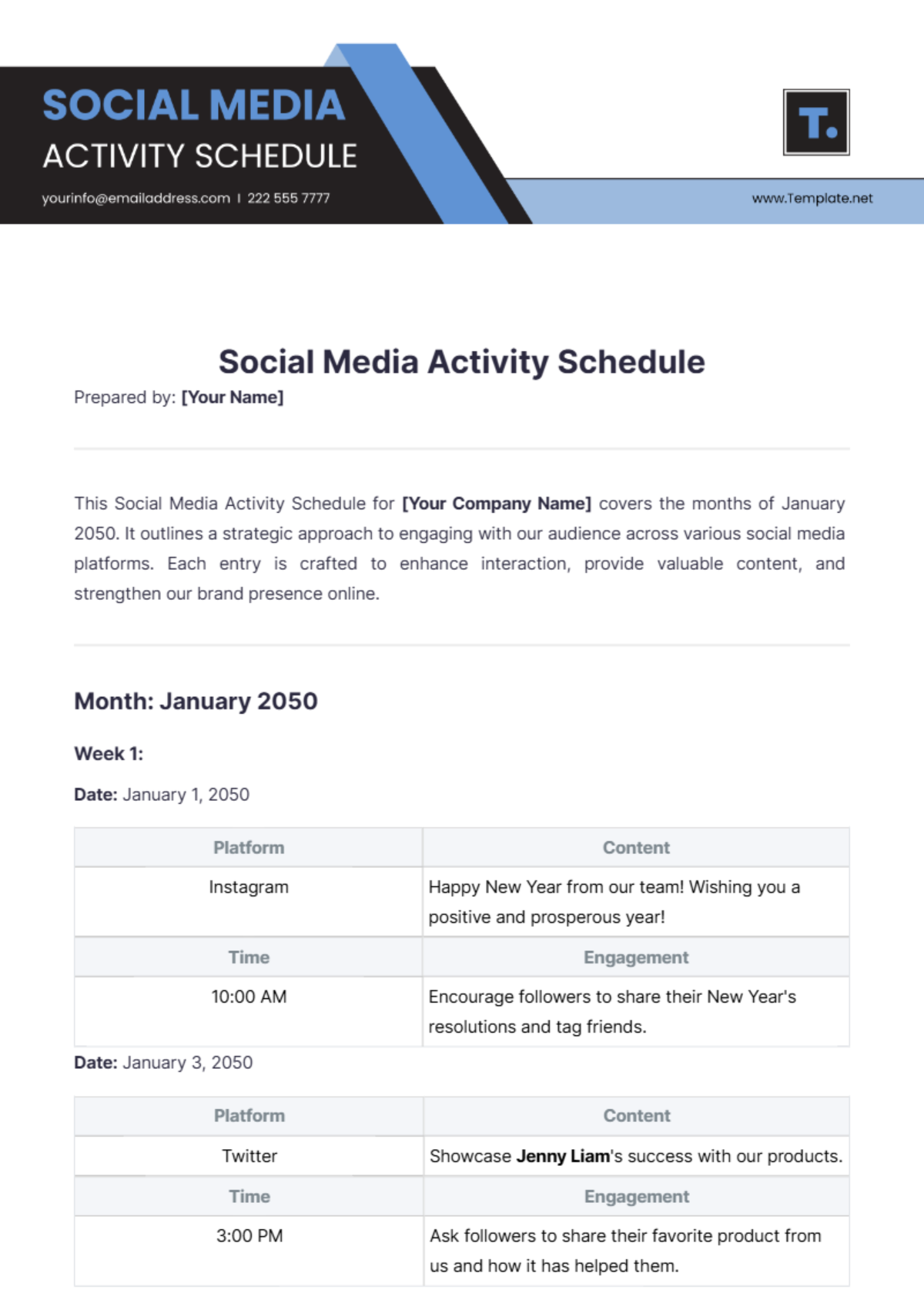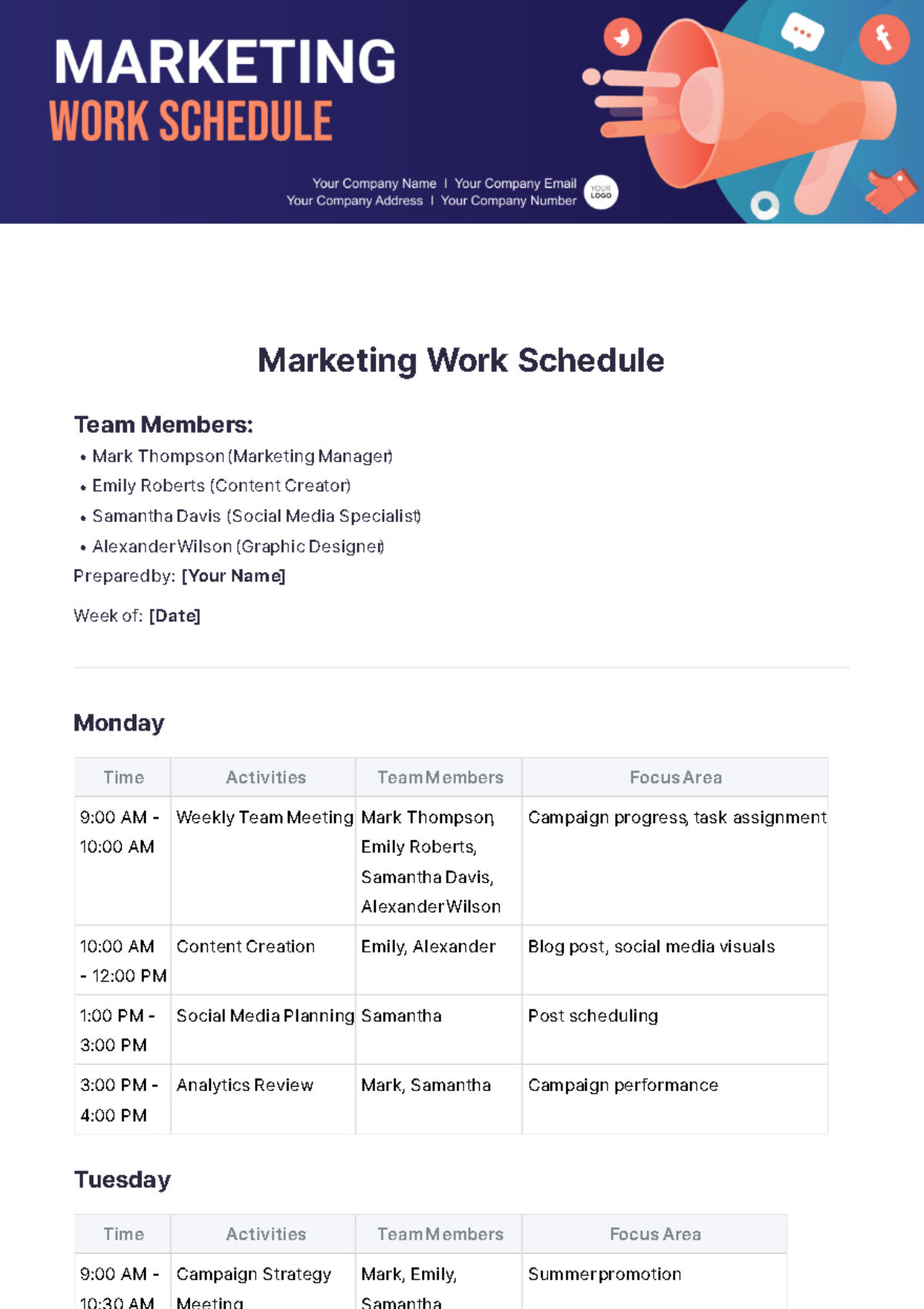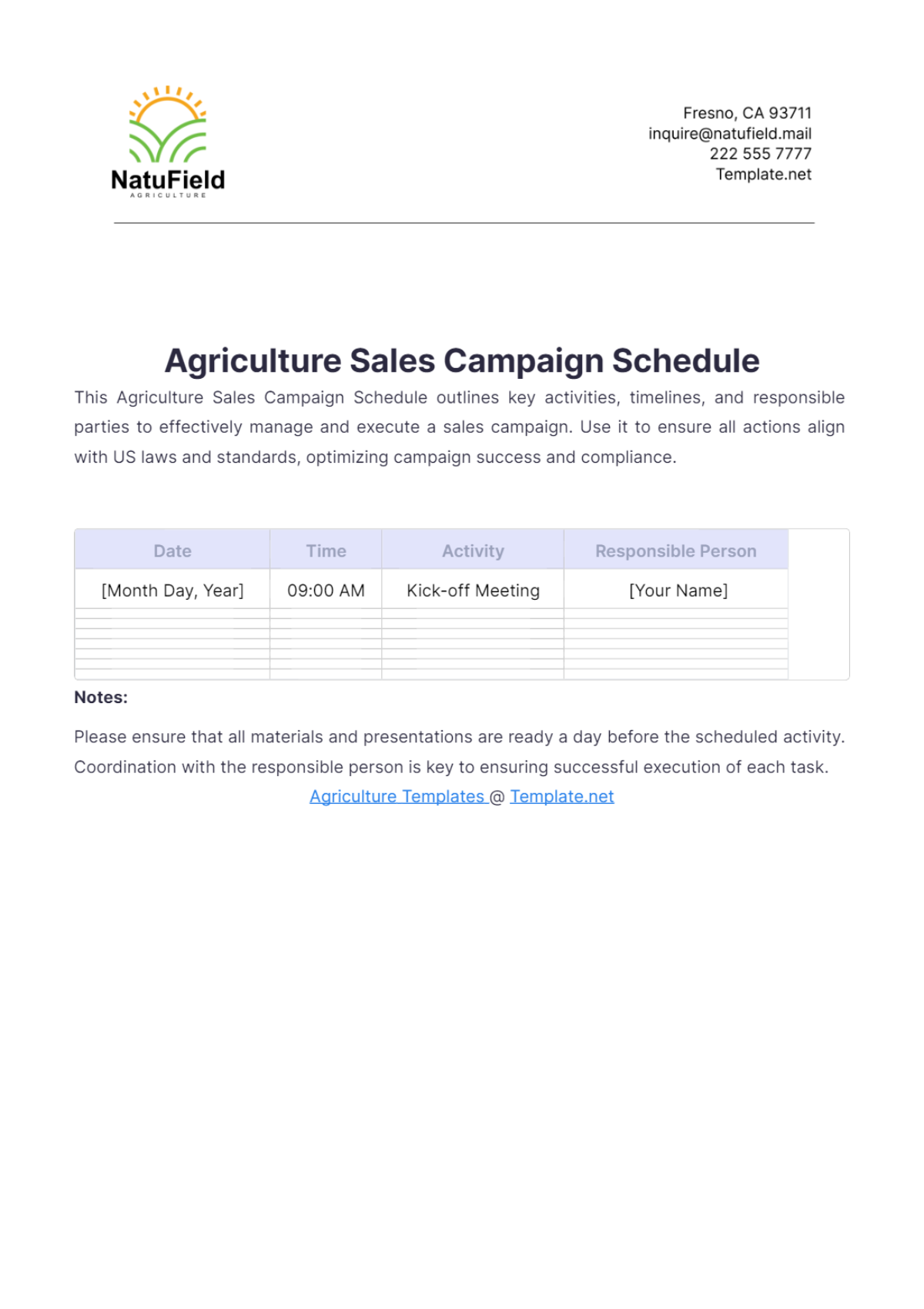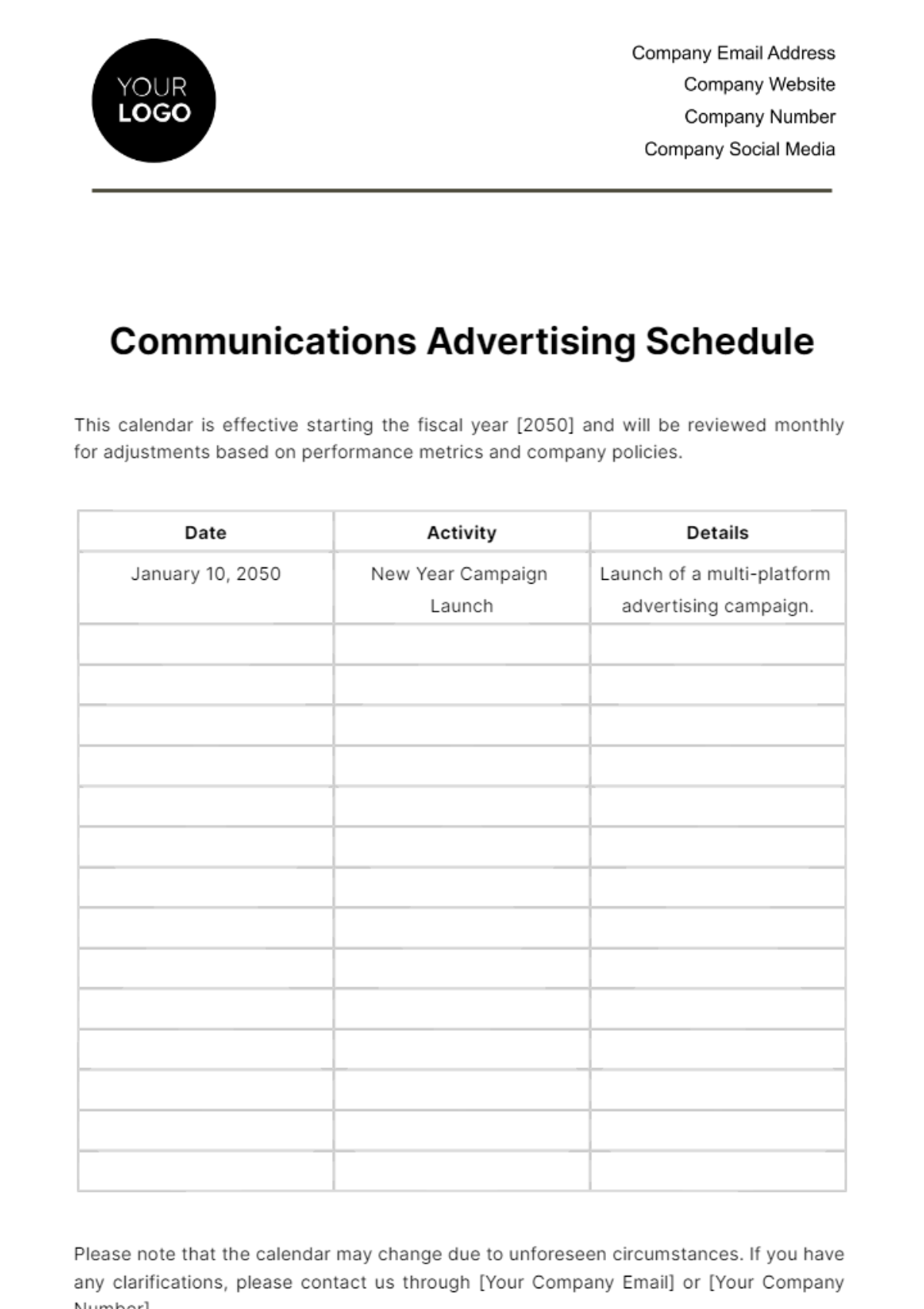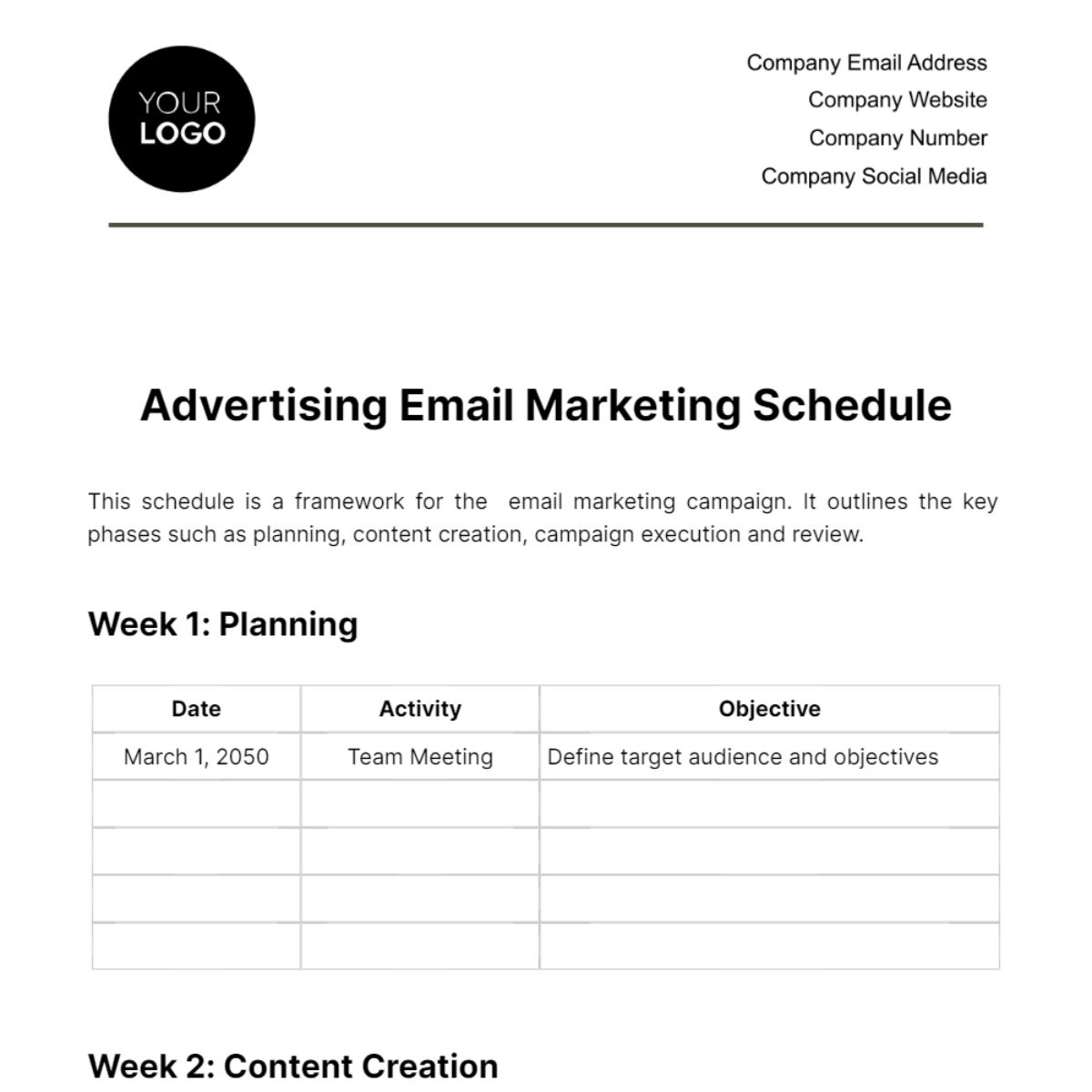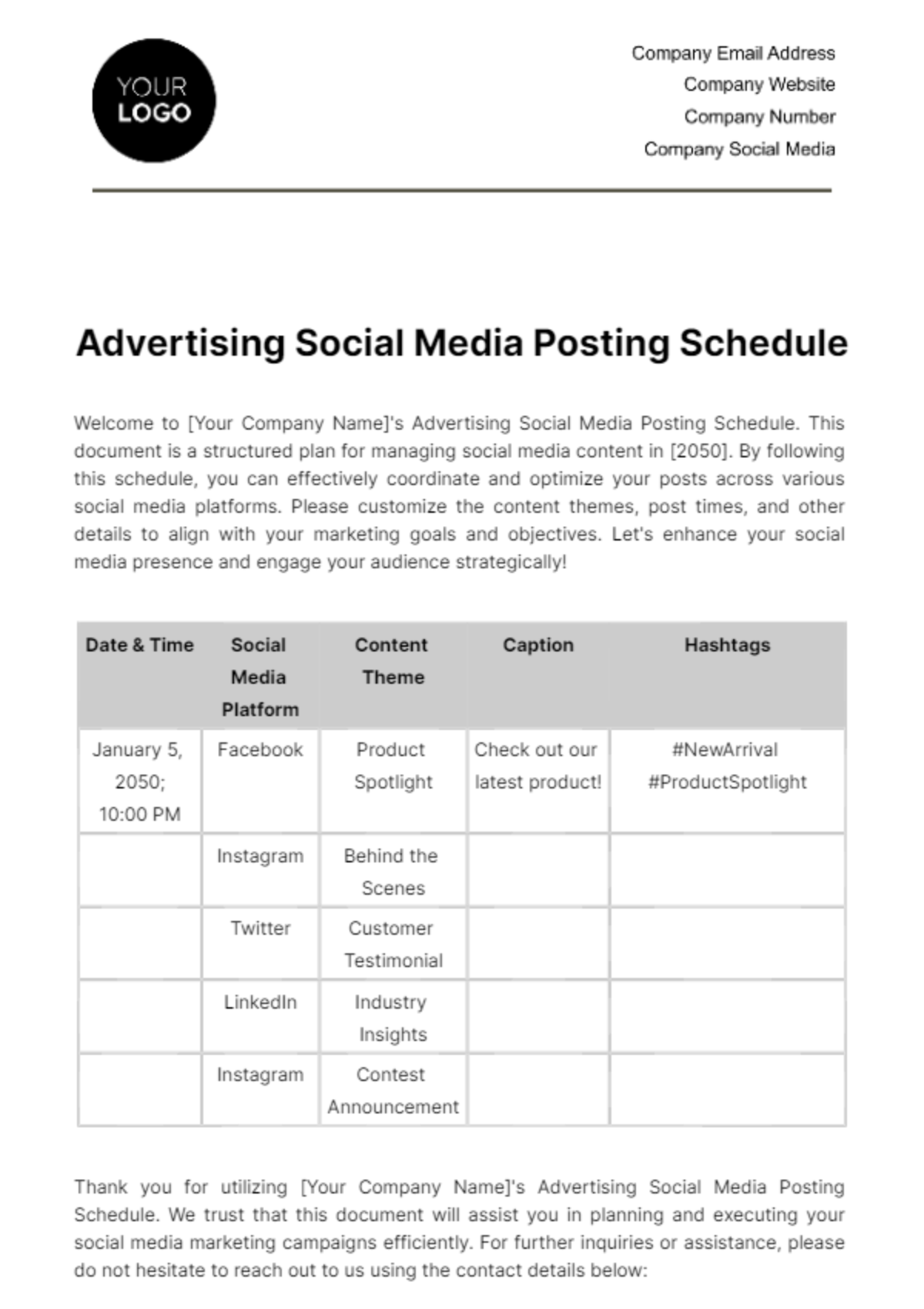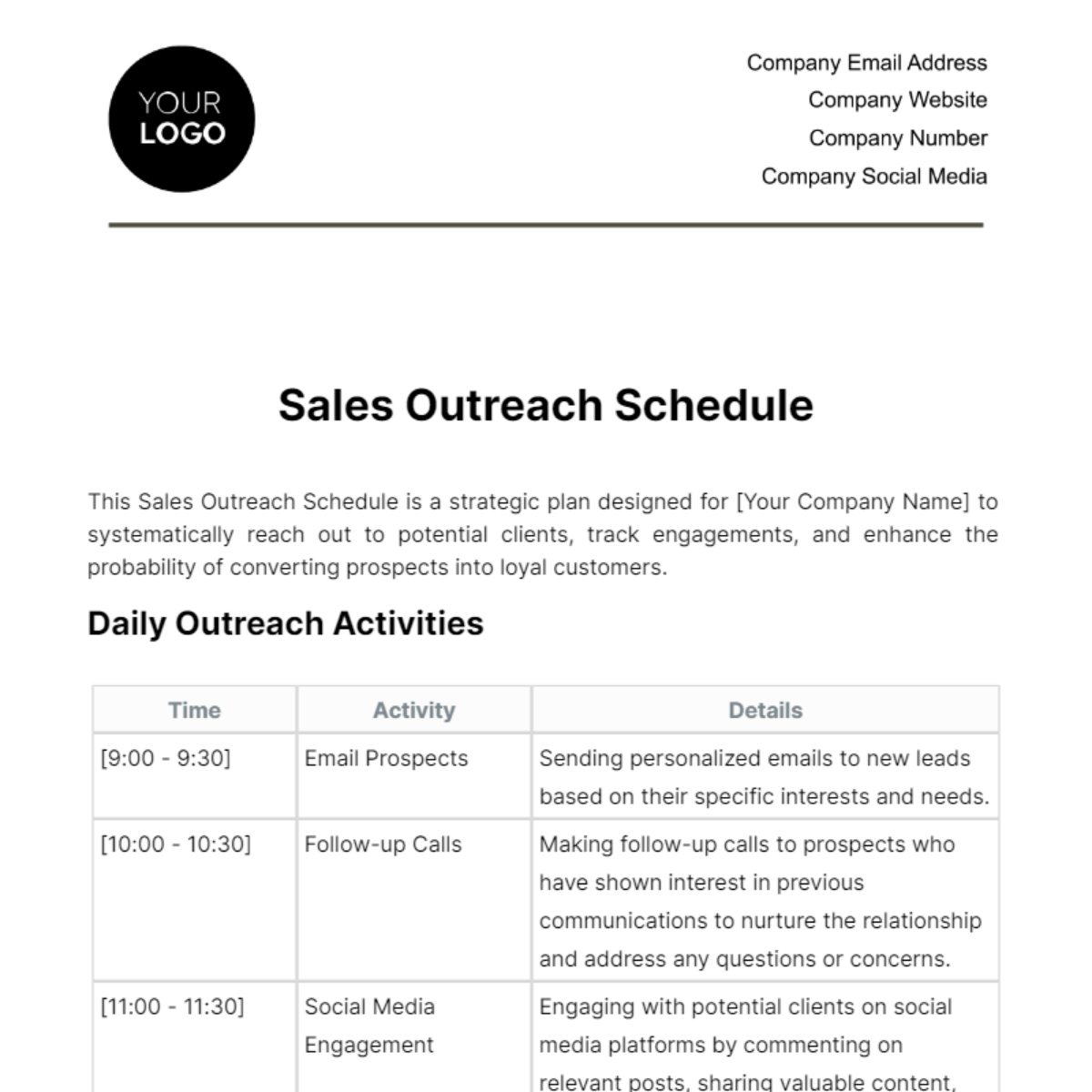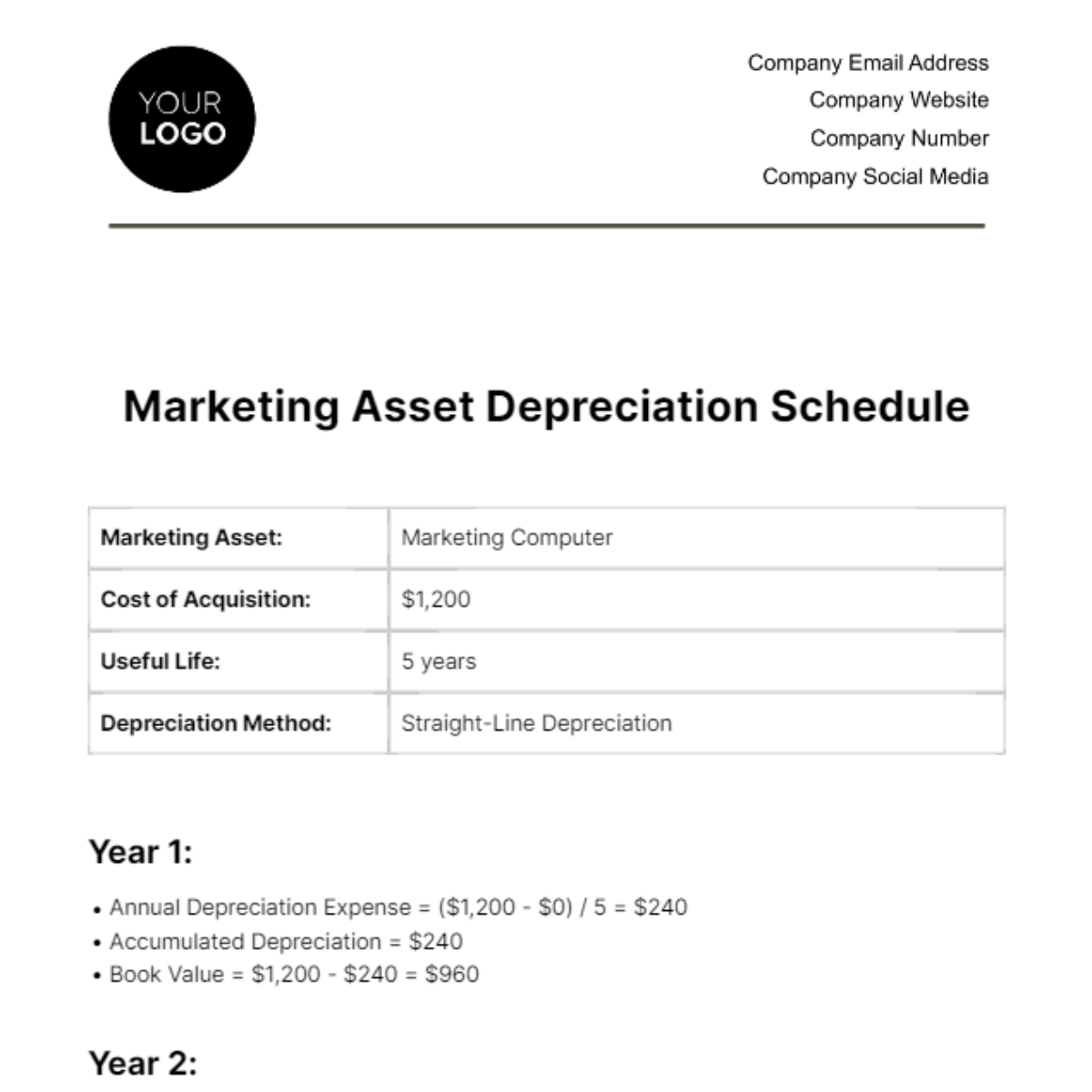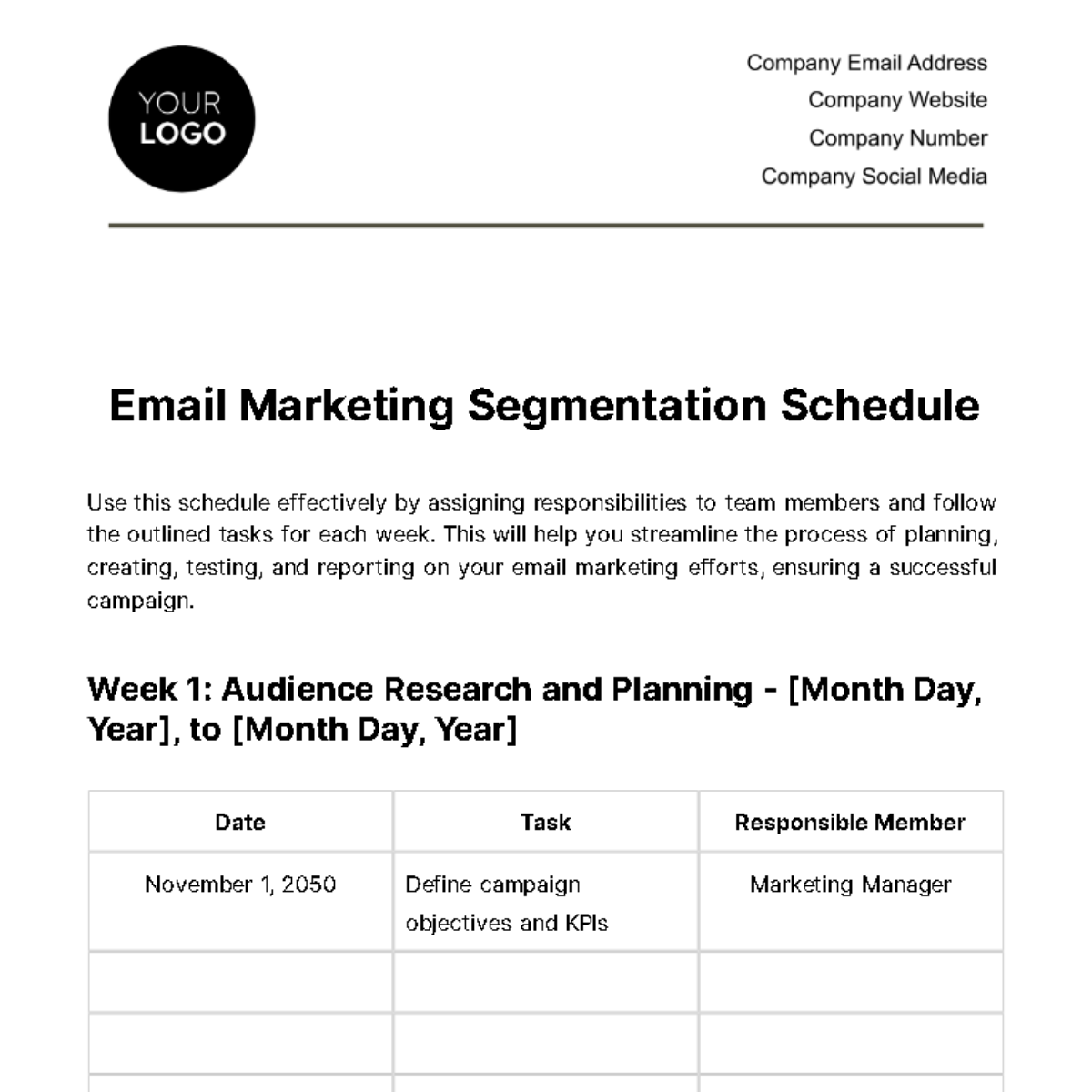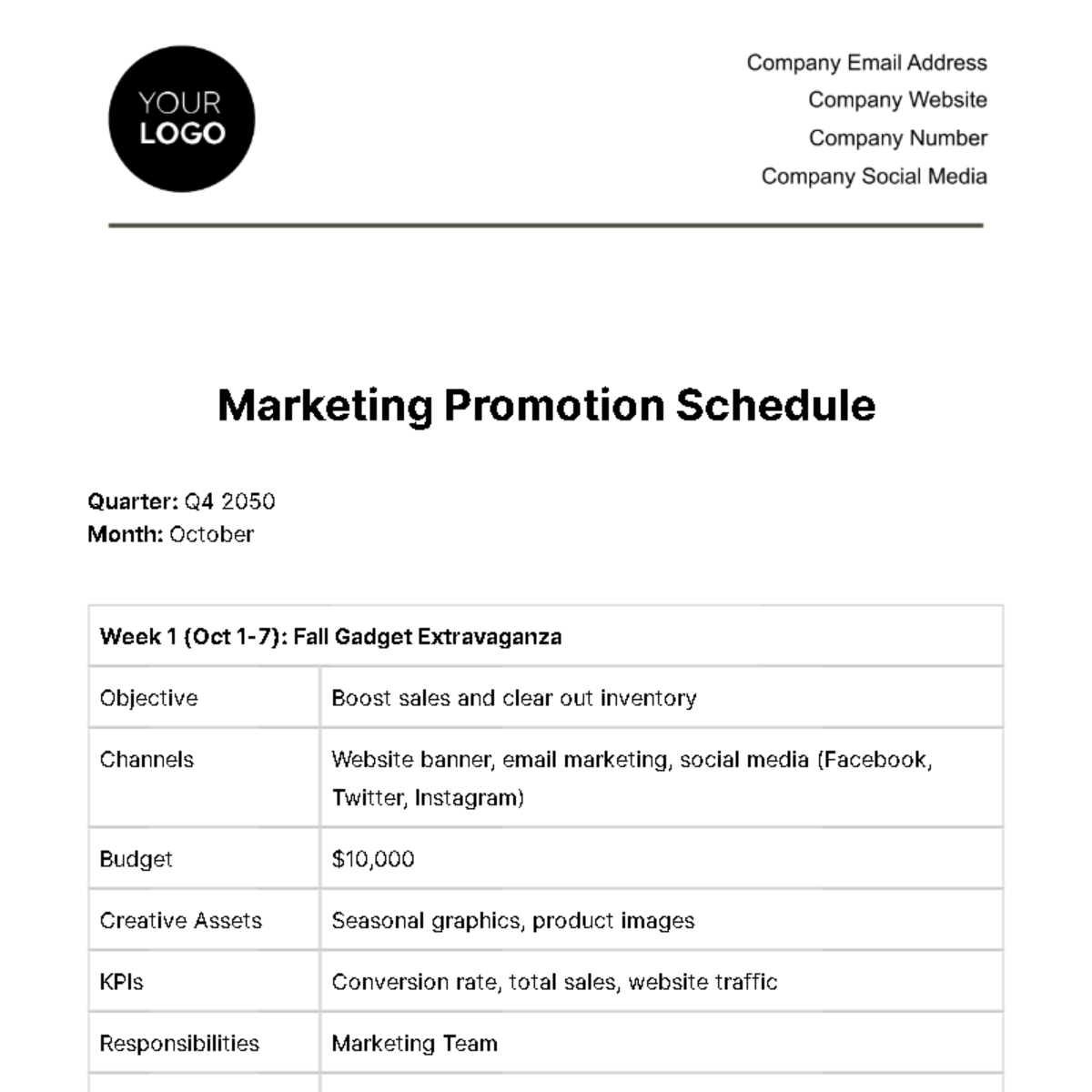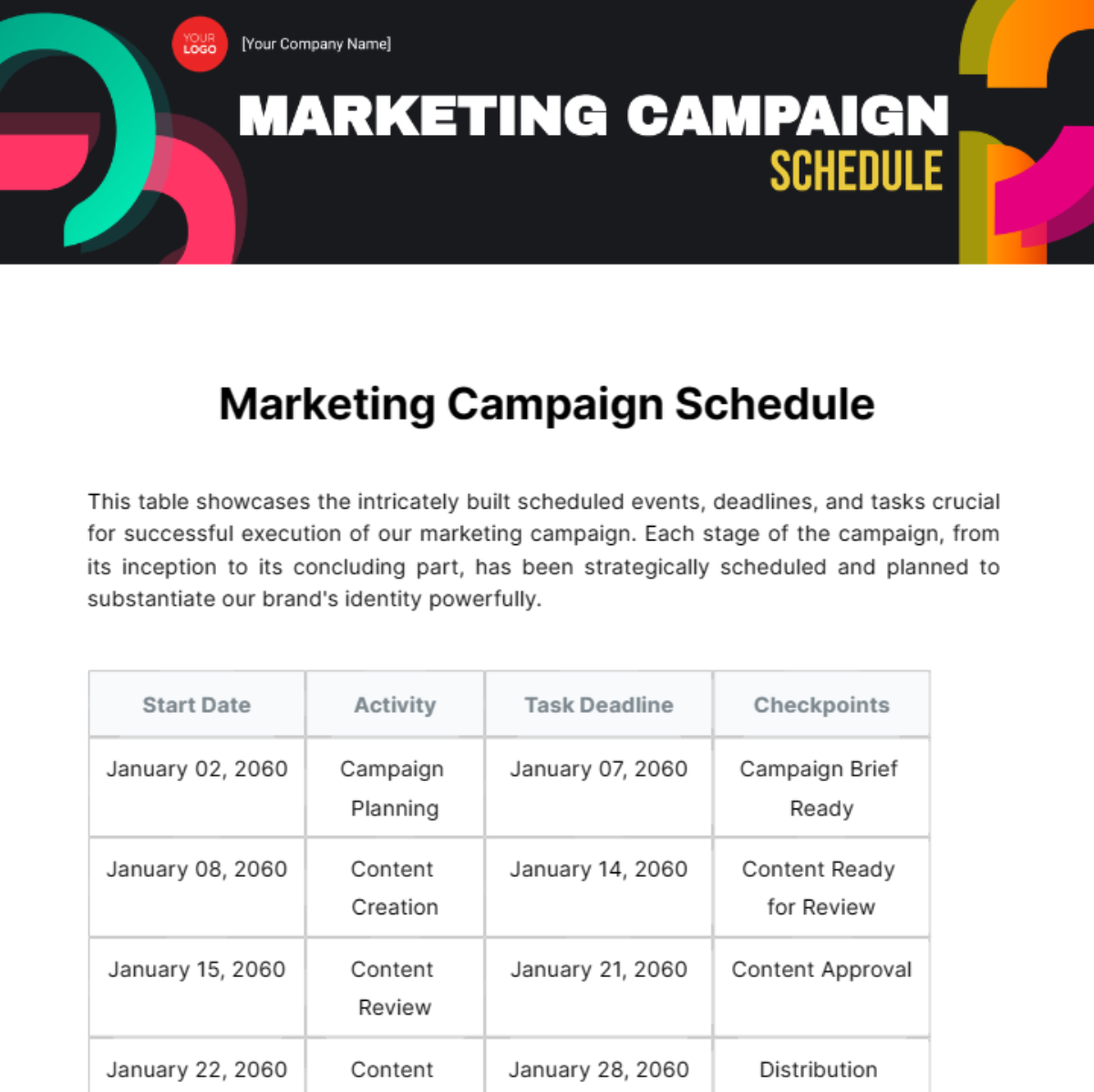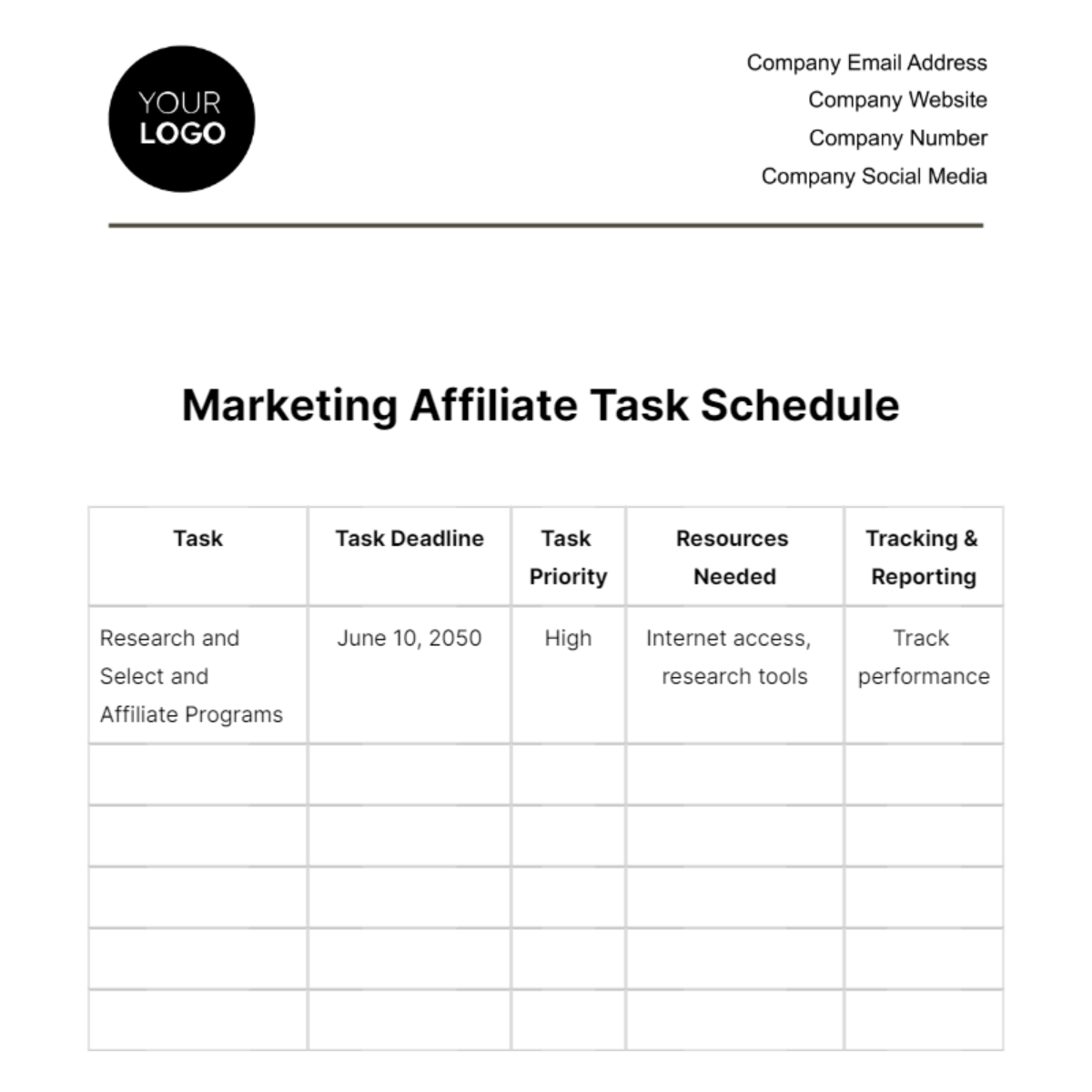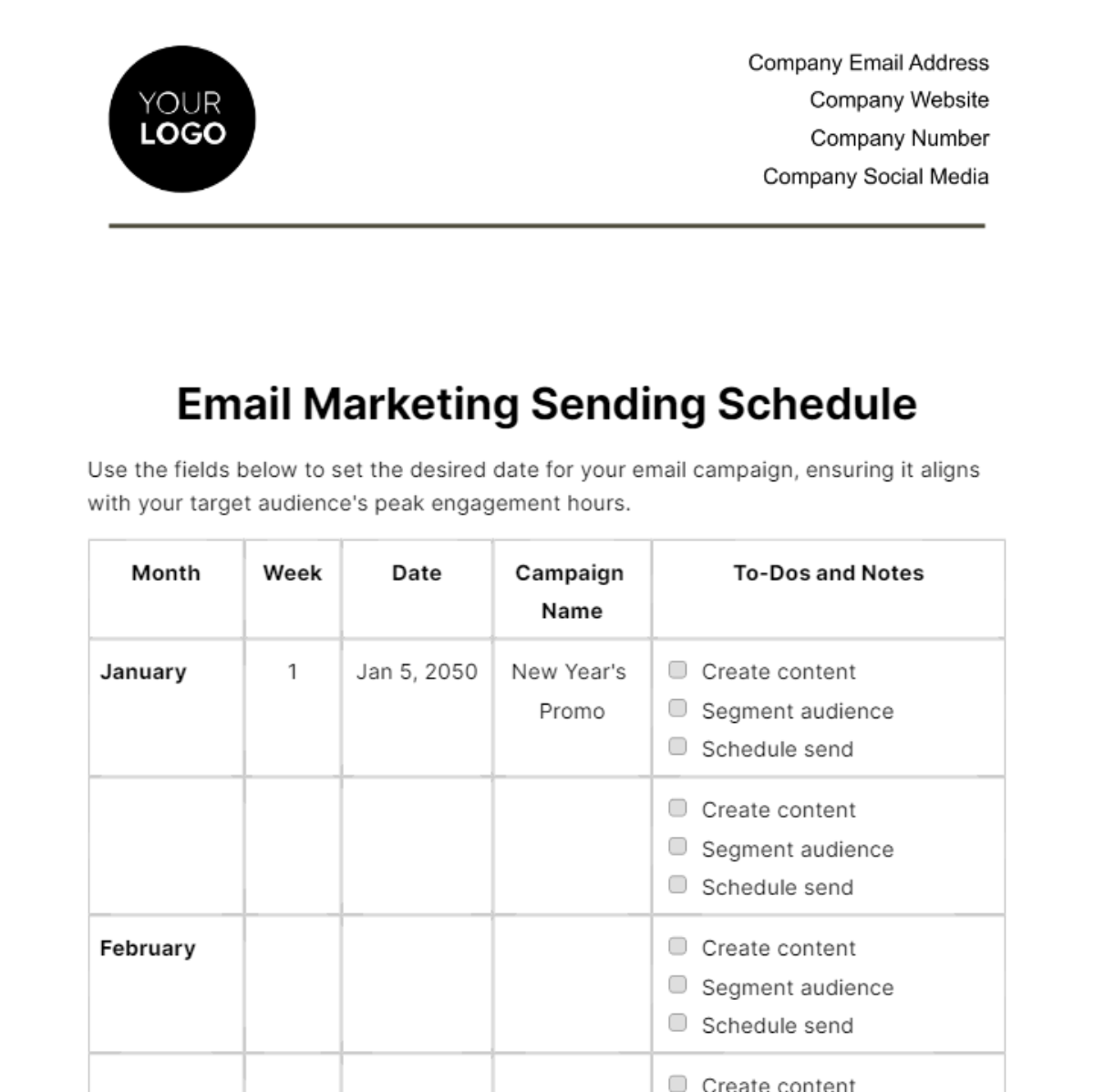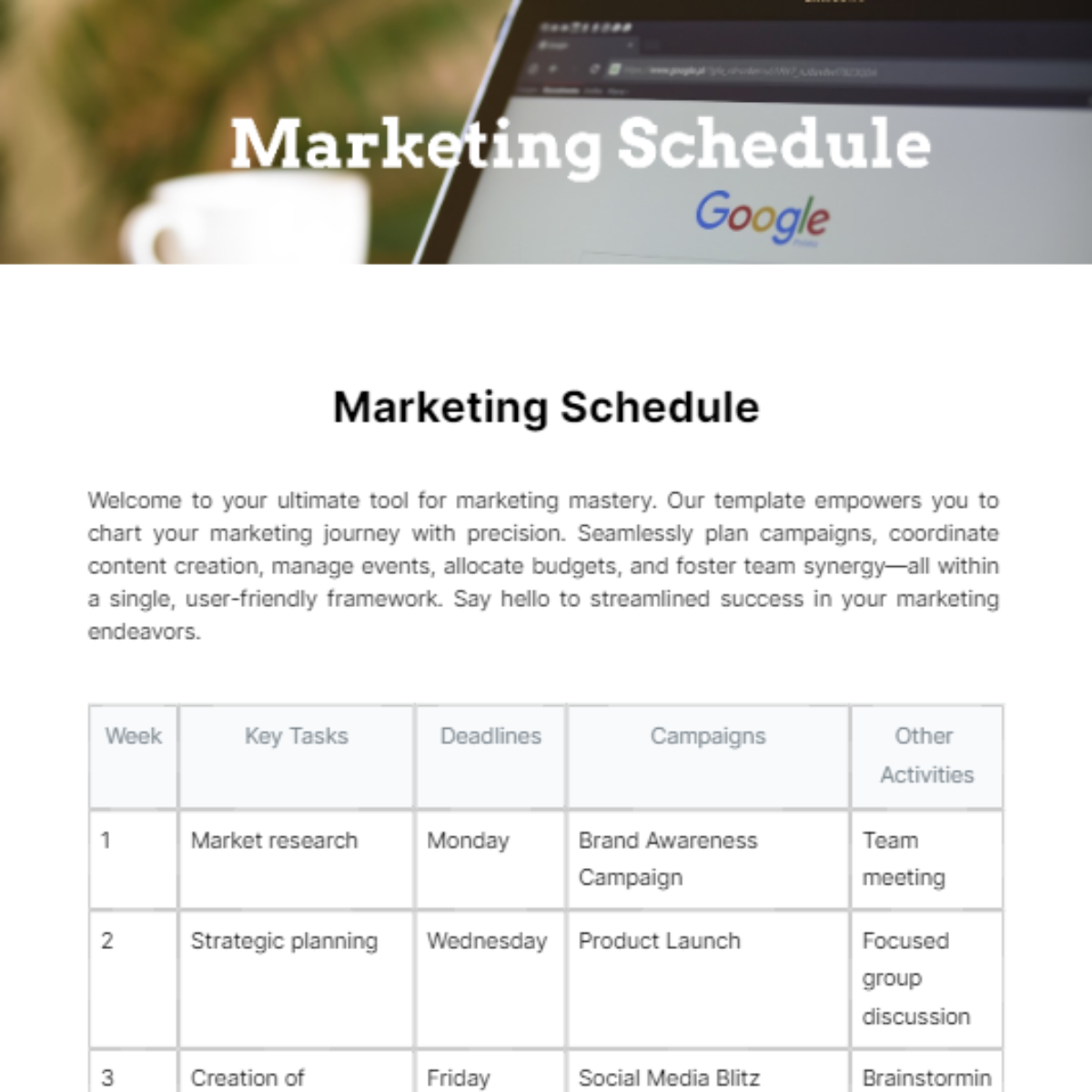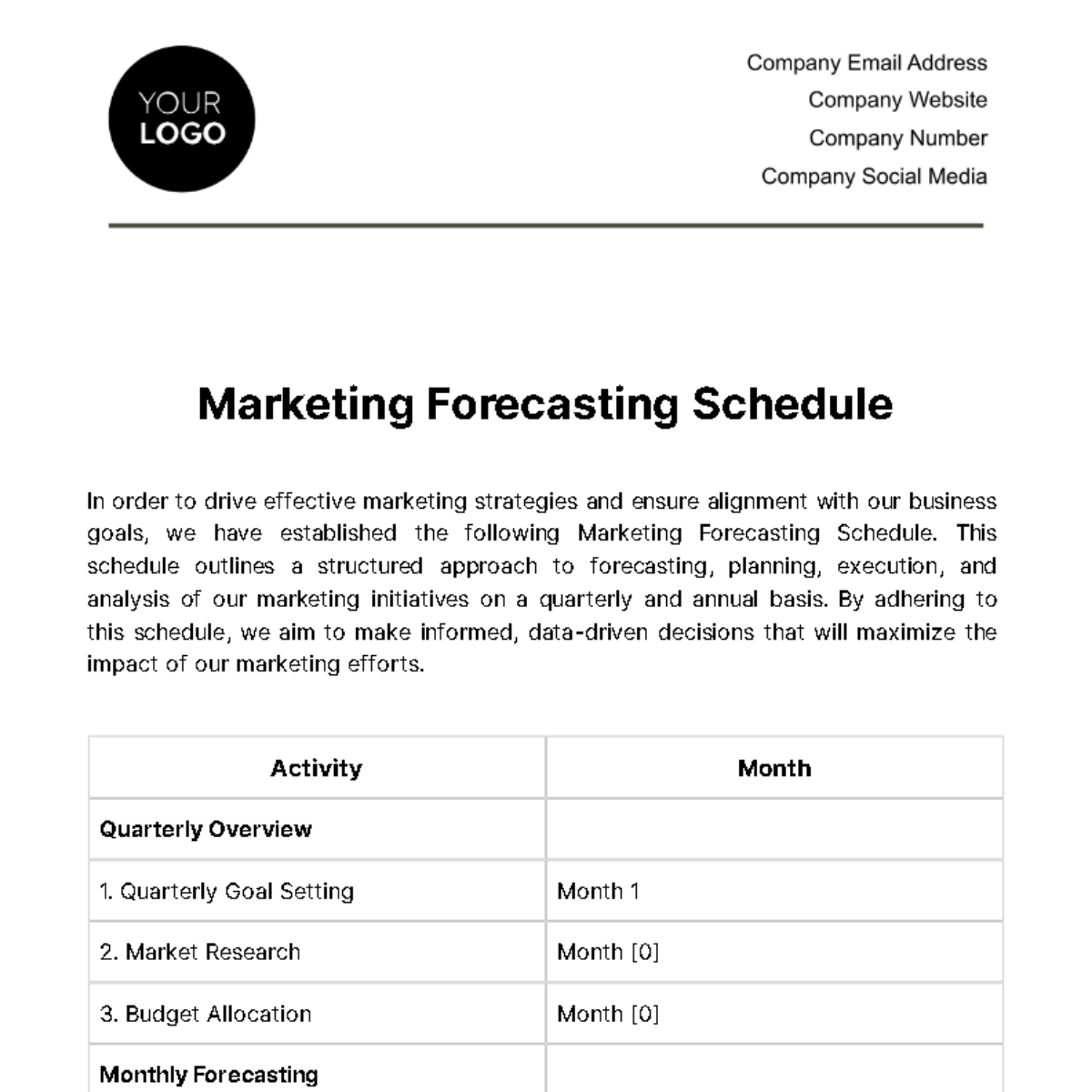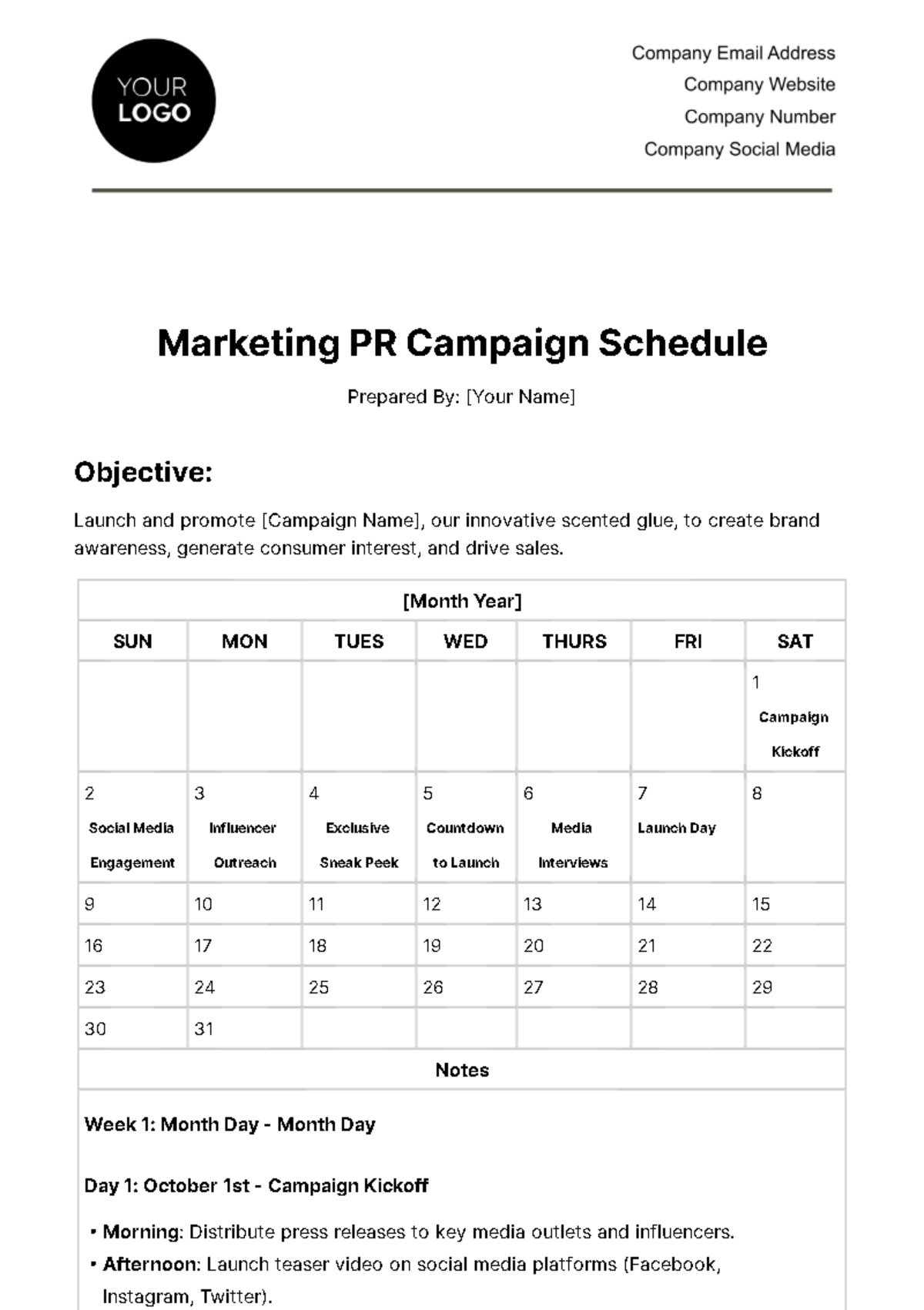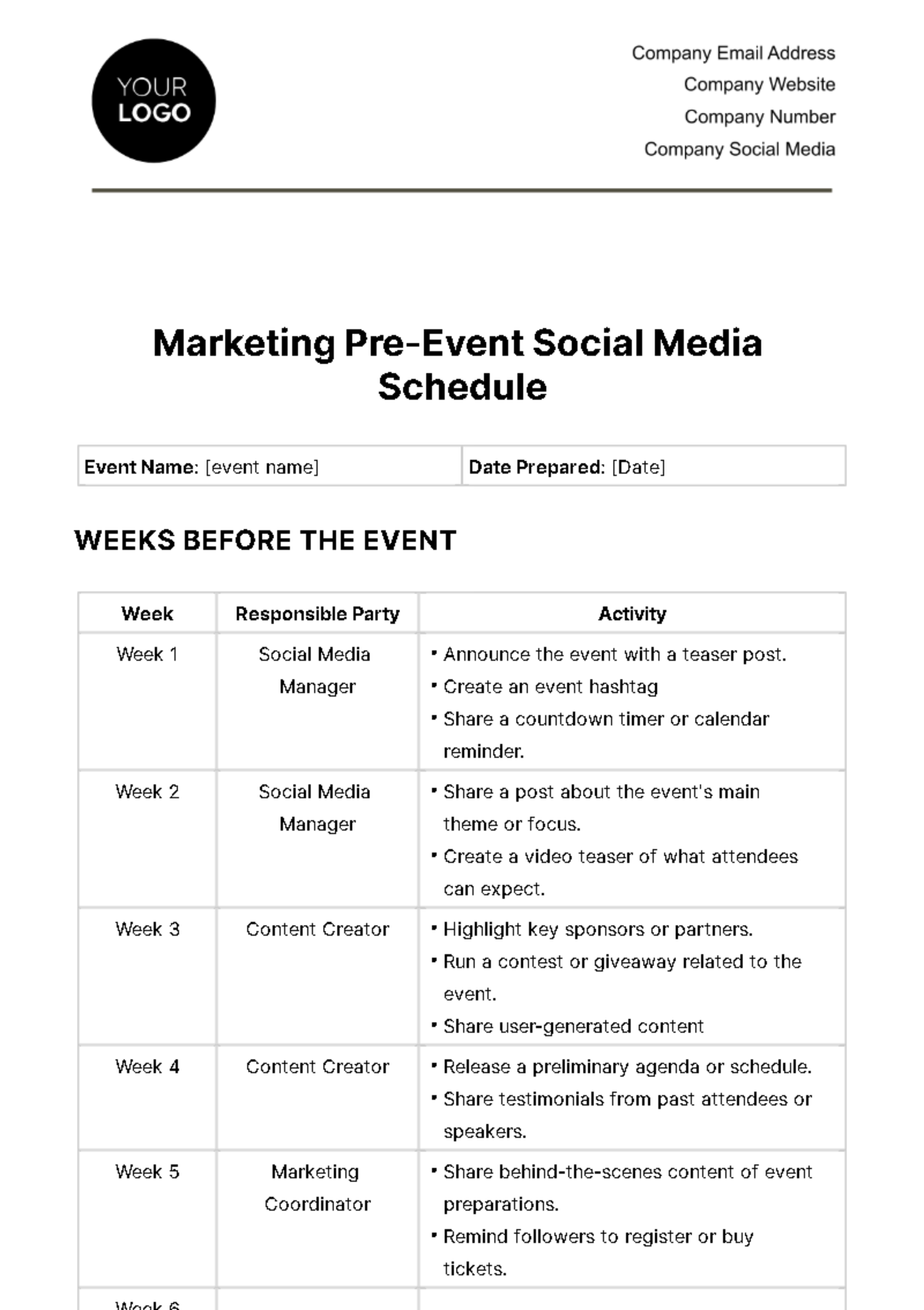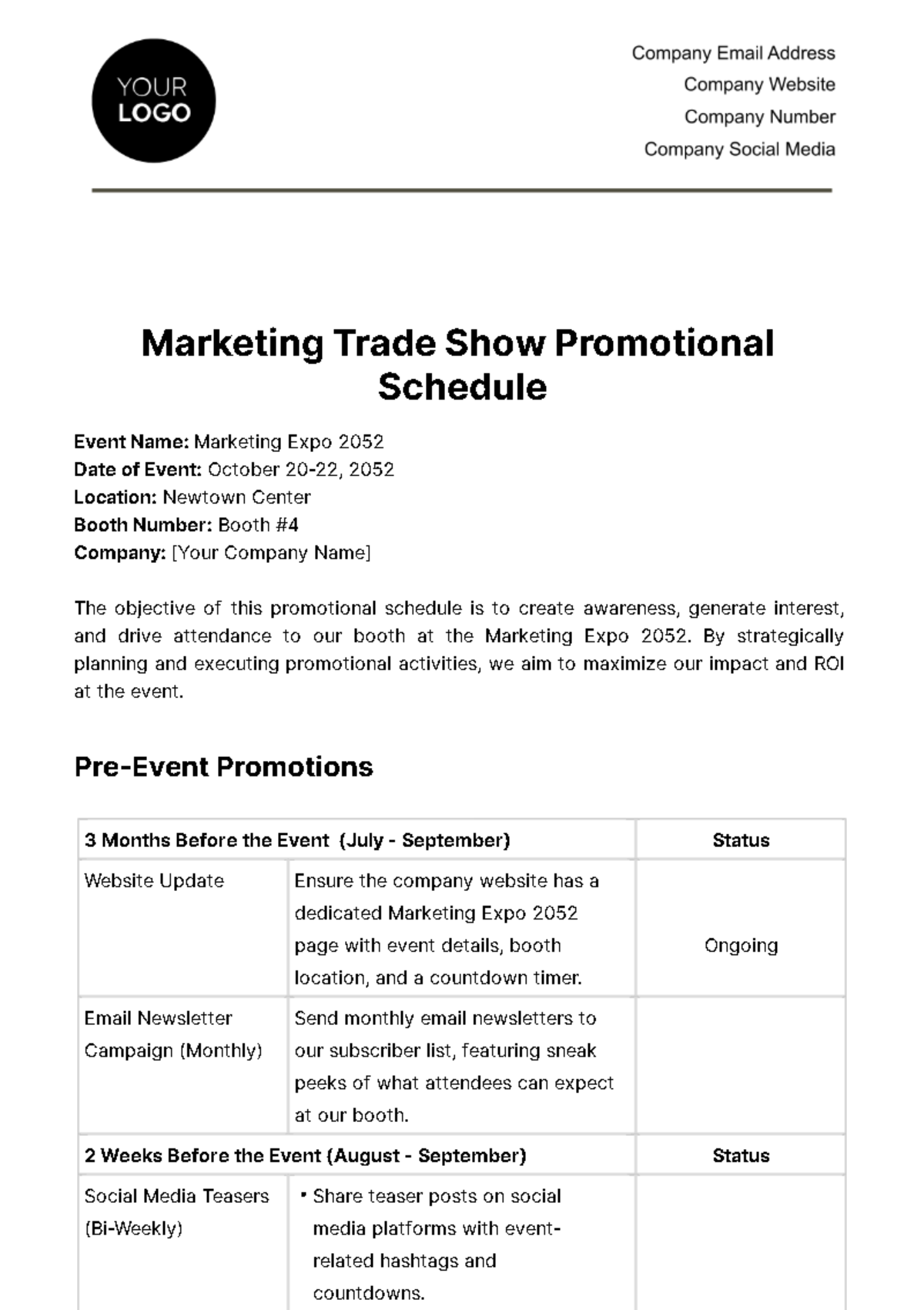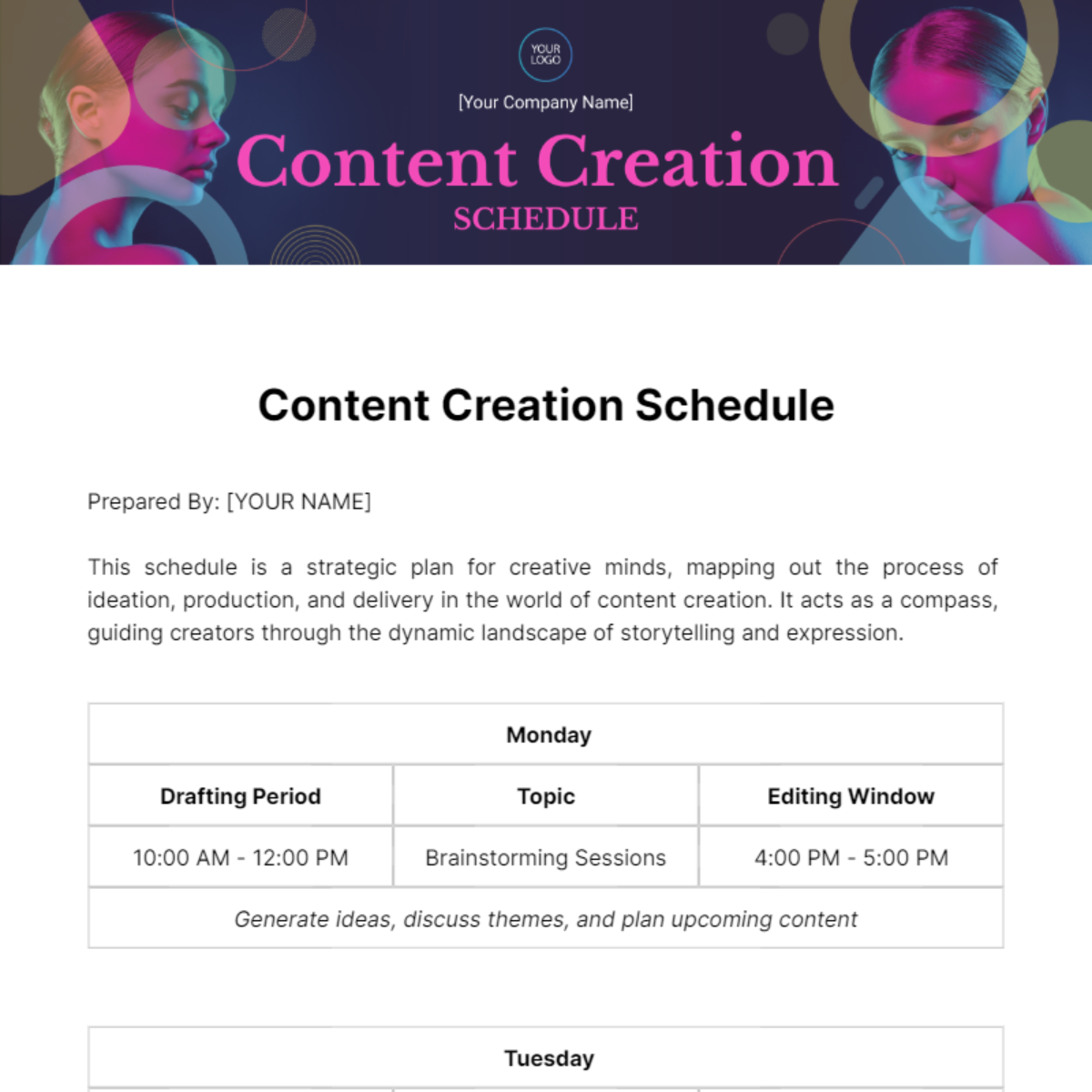Marketing Pricing Model Schedule
I. Introduction
A. Purpose of the Pricing Model Schedule: To establish a structured approach for determining the pricing strategy for our new software product, Music Den.
B. Overview of the Product/Service: Music Den is a feature-rich productivity software designed for small businesses, offering tools for project management, team collaboration, and document management.
II. Product/Service Information
Product/Service Name | Music Den |
Description | Comprehensive productivity software for small businesses |
Variants or Versions | Basic, Pro, and Enterprise |
Target Market or Customer Segment | Small to medium-sized businesses (SMBs) with 10-100 employees |
III. Pricing Objectives
A. Primary Pricing Goals: Maximize profit while capturing a significant market share within the first year of launch.
B. Secondary Objectives: Maintain a competitive edge and sustainable growth in the long term.
IV. Cost Analysis
A. Breakdown of Costs
Fixed Costs | $150,000 (salaries, rent, utilities) |
Variable Costs | $30 per unit (materials, customer support) |
Overhead Costs | $25,000 (advertising, administrative) |
Cost of Goods Sold (COGS) | $40 per unit |
B. Total Cost Calculation: Total cost per unit = $150,000 + ($30 + $25,000) = $150,030
V. Competitive Analysis
A. Competitor Pricing Strategies: Competitors offer similar software with prices ranging from $99 to $299.
B. Price Positioning Relative to Competitors: We aim to position Music Den as a premium solution, pricing it at $249 for the Pro version.
VI. Market Research
A. Customer Preferences and Willingness to Pay: Research shows that our target customers are willing to pay for quality software that improves productivity.
B. Demand Elasticity and Price Sensitivity: Elasticity is moderate, allowing some flexibility in pricing.
C. Market Trends: The market is growing, with increased demand for remote work solutions.
VII. Pricing Strategy
Aspect | Details |
Pricing Approach | Value-based pricing |
Pricing Structure | Tiered pricing |
Discounts and Promotions | Launch promotion - 20% off for the first three months |
VIII. Pricing Model
Aspect | Details |
Formula or Algorithm for Price Calculation | Price = Cost + Desired Profit Margin |
Inputs into the Pricing Model | Total cost per unit, desired profit margin (e.g., 40%) |
IX. Price Points
Tier/Package | Price |
Basic Tier | $99.00 |
Pro Tier | $249.00 |
Enterprise Tier | $499.00 |
X. Pricing Tiers or Options
Tier/Package | Description |
Basic Tier | Essential features |
Pro Tier | Full features |
Enterprise Tier | Advanced features |
XI. Price Testing and Adjustment
Aspect | Details |
Plan for Testing Different Prices | A/B testing with small user groups |
KPIs for Pricing Effectiveness | Conversion rates, customer acquisition costs, revenue growth |
Procedures for Price Adjustments | Adjust prices based on test results and market feedback |
XII. Implementation Timeline
Action | Timeline |
Launch pricing for Music Den | July 1, 2058 |
A/B Testing | July 15, 2058 |
Pricing Adjustment based on A/B Test | August 1, 2058 |
Quarterly Pricing Review | October 1, 2058 |
Annual Pricing Strategy Evaluation | January 1, 2059 |
XIII. Monitoring and Review
A. Procedures for Continuous Monitoring: Weekly sales and pricing analysis.
B. Regular Review of the Pricing Model: Quarterly reviews and adjustments as necessary.
XIV. Legal and Regulatory Considerations
A. Ensure Pricing Compliance: Comply with consumer protection laws and pricing regulations.
XV. Conclusion
A. Summary of Pricing Model Schedule: The pricing model schedule for Music Den reflects a well-thought-out strategy to maximize profit while providing value to customers.
B. Importance of Ongoing Monitoring and Adaptation: Emphasize the need for continuous assessment and adjustments as market conditions evolve.
Marketing Templates @ Template.net
